
Research Voyage
Research Tips and Infromation

PhD Defence Process: A Comprehensive Guide

Embarking on the journey toward a PhD is an intellectual odyssey marked by tireless research, countless hours of contemplation, and a fervent commitment to contributing to the body of knowledge in one’s field. As the culmination of this formidable journey, the PhD defence stands as the final frontier, the proverbial bridge between student and scholar.
In this comprehensive guide, we unravel the intricacies of the PhD defence—a momentous occasion that is both a celebration of scholarly achievement and a rigorous evaluation of academic prowess. Join us as we explore the nuances of the defence process, addressing questions about its duration, contemplating the possibility of failure, and delving into the subtle distinctions of language that surround it.
Beyond the formalities, we aim to shed light on the significance of this rite of passage, dispelling misconceptions about its nature. Moreover, we’ll consider the impact of one’s attire on this critical day and share personal experiences and practical tips from those who have successfully navigated the defence journey.
Whether you are on the precipice of your own defence or are simply curious about the process, this guide seeks to demystify the PhD defence, providing a roadmap for success and a nuanced understanding of the pivotal event that marks the transition from student to scholar.
Introduction
A. definition and purpose:, b. overview of the oral examination:, a. general duration of a typical defense, b. factors influencing the duration:, c. preparation and flexibility:, a. preparation and thorough understanding of the research:, b. handling questions effectively:, c. confidence and composure during the presentation:, d. posture of continuous improvement:, a. exploring the possibility of failure:, b. common reasons for failure:, c. steps to mitigate the risk of failure:, d. post-failure resilience:, a. addressing the language variation:, b. conforming to regional preferences:, c. consistency in usage:, d. flexibility and adaptability:, e. navigating language in a globalized academic landscape:, a. debunking myths around the formality of the defense:, b. significance in validating research contributions:, c. post-defense impact:, a. appropriate attire for different settings:, b. professionalism and the impact of appearance:, c. practical tips for dressing success:, b. practical tips for a successful defense:, c. post-defense reflections:, career options after phd.
Embarking on the doctoral journey is a formidable undertaking, where aspiring scholars immerse themselves in the pursuit of knowledge, contributing new insights to their respective fields. At the pinnacle of this academic odyssey lies the PhD defence—a culmination that transcends the boundaries of a mere formality, symbolizing the transformation from a student of a discipline to a recognized contributor to the academic tapestry.
The PhD defence, also known as the viva voce or oral examination, is a pivotal moment in the life of a doctoral candidate.
PhD defence is not merely a ritualistic ceremony; rather, it serves as a platform for scholars to present, defend, and elucidate the findings and implications of their research. The defence is the crucible where ideas are tested, hypotheses scrutinized, and the depth of scholarly understanding is laid bare.
The importance of the PhD defence reverberates throughout the academic landscape. It is not just a capstone event; it is the juncture where academic rigour meets real-world application. The defence is the litmus test of a researcher’s ability to articulate, defend, and contextualize their work—an evaluation that extends beyond the pages of a dissertation.
Beyond its evaluative nature, the defence serves as a rite of passage, validating the years of dedication, perseverance, and intellectual rigour invested in the research endeavour. Success in the defence is a testament to the candidate’s mastery of their subject matter and the originality and impact of their contributions to the academic community.
Furthermore, a successful defence paves the way for future contributions, positioning the scholar as a recognized authority in their field. The defence is not just an endpoint; it is a launchpad, propelling researchers into the next phase of their academic journey as they continue to shape and redefine the boundaries of knowledge.
In essence, the PhD defence is more than a ceremonial checkpoint—it is a transformative experience that validates the intellectual journey, underscores the significance of scholarly contributions, and sets the stage for a continued legacy of academic excellence. As we navigate the intricacies of this process, we invite you to explore the multifaceted dimensions that make the PhD defence an indispensable chapter in the narrative of academic achievement.
What is a PhD Defence?
At its core, a PhD defence is a rigorous and comprehensive examination that marks the culmination of a doctoral candidate’s research journey. It is an essential component of the doctoral process in which the candidate is required to defend their dissertation before a committee of experts in the field. The defence serves multiple purposes, acting as both a showcase of the candidate’s work and an evaluative measure of their understanding, critical thinking, and contributions to the academic domain.
The primary goals of a PhD defence include:
- Presentation of Research: The candidate presents the key findings, methodology, and significance of their research.
- Demonstration of Mastery: The defence assesses the candidate’s depth of understanding, mastery of the subject matter, and ability to engage in scholarly discourse.
- Critical Examination: Committee members rigorously question the candidate, challenging assumptions, testing methodologies, and probing the boundaries of the research.
- Validation of Originality: The defence validates the originality and contribution of the candidate’s work to the existing body of knowledge.
The PhD defence often takes the form of an oral examination, commonly referred to as the viva voce. This oral component adds a dynamic and interactive dimension to the evaluation process. Key elements of the oral examination include:
- Presentation: The candidate typically begins with a formal presentation, summarizing the dissertation’s main components, methodology, and findings. This presentation is an opportunity to showcase the significance and novelty of the research.
- Questioning and Discussion: Following the presentation, the candidate engages in a thorough questioning session with the examination committee. Committee members explore various aspects of the research, challenging the candidates to articulate their rationale, defend their conclusions, and respond to critiques.
- Defence of Methodology: The candidate is often required to defend the chosen research methodology, demonstrating its appropriateness, rigour, and contribution to the field.
- Evaluation of Contributions: Committee members assess the originality and impact of the candidate’s contributions to the academic discipline, seeking to understand how the research advances existing knowledge.
The oral examination is not a mere formality; it is a dynamic exchange that tests the candidate’s intellectual acumen, research skills, and capacity to contribute meaningfully to the scholarly community.
In essence, the PhD defence is a comprehensive and interactive evaluation that encapsulates the essence of a candidate’s research journey, demanding a synthesis of knowledge, clarity of expression, and the ability to navigate the complexities of academic inquiry. As we delve into the specifics of the defence process, we will unravel the layers of preparation and skill required to navigate this transformative academic milestone.
How Long is a PhD Defence?
The duration of a PhD defence can vary widely, but it typically ranges from two to three hours. This time frame encompasses the candidate’s presentation of their research, questioning and discussions with the examination committee, and any additional deliberations or decisions by the committee. However, it’s essential to note that this is a general guideline, and actual defence durations may vary based on numerous factors.
- Sciences and Engineering: Defenses in these fields might lean towards the shorter end of the spectrum, often around two hours. The focus is often on the methodology, results, and technical aspects.
- Humanities and Social Sciences: Given the theoretical and interpretive nature of research in these fields, defences might extend closer to three hours or more. Discussions may delve into philosophical underpinnings and nuanced interpretations.
- Simple vs. Complex Studies: The complexity of the research itself plays a role. Elaborate experiments, extensive datasets, or intricate theoretical frameworks may necessitate a more extended defence.
- Number of Committee Members: A larger committee or one with diverse expertise may lead to more extensive discussions and varied perspectives, potentially elongating the defence.
- Committee Engagement: The level of engagement and probing by committee members can influence the overall duration. In-depth discussions or debates may extend the defence time.
- Cultural Norms: In some countries, the oral defence might be more ceremonial, with less emphasis on intense questioning. In others, a rigorous and extended defence might be the norm.
- Evaluation Practices: Different academic systems have varying evaluation criteria, which can impact the duration of the defence.
- Institutional Guidelines: Some institutions may have specific guidelines on defence durations, influencing the overall time allotted for the process.
Candidates should be well-prepared for a defence of any duration. Adequate preparation not only involves a concise presentation of the research but also anticipates potential questions and engages in thoughtful discussions. Additionally, candidates should be flexible and responsive to the dynamics of the defense, adapting to the pace set by the committee.
Success Factors in a PhD Defence
- Successful defence begins with a deep and comprehensive understanding of the research. Candidates should be well-versed in every aspect of their study, from the theoretical framework to the methodology and findings.
- Thorough preparation involves anticipating potential questions from the examination committee. Candidates should consider the strengths and limitations of their research and be ready to address queries related to methodology, data analysis, and theoretical underpinnings.
- Conducting mock defences with peers or mentors can be invaluable. It helps refine the presentation, exposes potential areas of weakness, and provides an opportunity to practice responding to challenging questions.
- Actively listen to questions without interruption. Understanding the nuances of each question is crucial for providing precise and relevant responses.
- Responses should be clear, concise, and directly address the question. Avoid unnecessary jargon, and strive to convey complex concepts in a manner that is accessible to the entire committee.
- It’s acceptable not to have all the answers. If faced with a question that stumps you, acknowledge it honestly. Expressing a willingness to explore the topic further demonstrates intellectual humility.
- Use questions as opportunities to reinforce key messages from the research. Skillfully link responses back to the core contributions of the study, emphasizing its significance.
- Rehearse the presentation multiple times to build familiarity with the material. This enhances confidence, reduces nervousness, and ensures a smooth and engaging delivery.
- Maintain confident and open body language. Stand tall, make eye contact, and use gestures judiciously. A composed demeanour contributes to a positive impression.
- Acknowledge and manage nervousness. It’s natural to feel some anxiety, but channelling that energy into enthusiasm for presenting your research can turn nervousness into a positive force.
- Engage with the committee through a dynamic and interactive presentation. Invite questions during the presentation to create a more conversational atmosphere.
- Utilize visual aids effectively. Slides or other visual elements should complement the spoken presentation, reinforcing key points without overwhelming the audience.
- View the defence not only as an evaluation but also as an opportunity for continuous improvement. Feedback received during the defence can inform future research endeavours and scholarly pursuits.
In essence, success in a PhD defence hinges on meticulous preparation, adept handling of questions, and projecting confidence and composure during the presentation. A well-prepared and resilient candidate is better positioned to navigate the challenges of the defence, transforming it from a moment of evaluation into an affirmation of scholarly achievement.
Failure in PhD Defence
- While the prospect of failing a PhD defence is relatively rare, it’s essential for candidates to acknowledge that the possibility exists. Understanding this reality can motivate diligent preparation and a proactive approach to mitigate potential risks.
- Failure, if it occurs, should be seen as a learning opportunity rather than a definitive endpoint. It may highlight areas for improvement and offer insights into refining the research and presentation.
- Lack of thorough preparation, including a weak grasp of the research content, inadequate rehearsal, and failure to anticipate potential questions, can contribute to failure.
- Inability to effectively defend the chosen research methodology, including justifying its appropriateness and demonstrating its rigour, can be a critical factor.
- Failing to clearly articulate the original contributions of the research and its significance to the field may lead to a negative assessment.
- Responding defensively to questions, exhibiting a lack of openness to critique, or being unwilling to acknowledge limitations can impact the overall impression.
- Inability to address committee concerns or incorporate constructive feedback received during the defense may contribute to a negative outcome.
- Comprehensive preparation is the cornerstone of success. Candidates should dedicate ample time to understanding every facet of their research, conducting mock defences, and seeking feedback.
- Identify potential weaknesses in the research and address them proactively. Being aware of limitations and articulating plans for addressing them in future work demonstrates foresight.
- Engage with mentors, peers, or advisors before the defence. Solicit constructive feedback on both the content and delivery of the presentation to refine and strengthen the defence.
- Develop strategies to manage stress and nervousness. Techniques such as mindfulness, deep breathing, or visualization can be effective in maintaining composure during the defence.
- Conduct a pre-defense review of all materials, ensuring that the presentation aligns with the dissertation and that visual aids are clear and supportive.
- Approach the defence with an open and reflective attitude. Embrace critique as an opportunity for improvement rather than as a personal affront.
- Clarify expectations with the examination committee beforehand. Understanding the committee’s focus areas and preferences can guide preparation efforts.
- In the event of failure, candidates should approach the situation with resilience. Seek feedback from the committee, understand the reasons for the outcome, and use the experience as a springboard for improvement.
In summary, while the prospect of failing a PhD defence is uncommon, acknowledging its possibility and taking proactive steps to mitigate risks are crucial elements of a well-rounded defence strategy. By addressing common failure factors through thorough preparation, openness to critique, and a resilient attitude, candidates can increase their chances of a successful defence outcome.
PhD Defense or Defence?
- The choice between “defense” and “defence” is primarily a matter of British English versus American English spelling conventions. “Defense” is the preferred spelling in American English, while “defence” is the British English spelling.
- In the global academic community, both spellings are generally understood and accepted. However, the choice of spelling may be influenced by the academic institution’s language conventions or the preferences of individual scholars.
- Academic institutions may have specific guidelines regarding language conventions, and candidates are often expected to adhere to the institution’s preferred spelling.
- Candidates may also consider the preferences of their advisors or committee members. If there is a consistent spelling convention used within the academic department, it is advisable to align with those preferences.
- Consideration should be given to the spelling conventions of scholarly journals in the candidate’s field. If intending to publish research stemming from the dissertation, aligning with the conventions of target journals is prudent.
- If the defense presentation or dissertation will be shared with an international audience, using a more universally recognized spelling (such as “defense”) may be preferred to ensure clarity and accessibility.
- Regardless of the chosen spelling, it’s crucial to maintain consistency throughout the document. Mixing spellings can distract from the content and may be perceived as an oversight.
- In oral presentations and written correspondence related to the defence, including emails, it’s advisable to maintain consistency with the chosen spelling to present a professional and polished image.
- Recognizing that language conventions can vary, candidates should approach the choice of spelling with flexibility. Being adaptable to the preferences of the academic context and demonstrating an awareness of regional variations reflects a nuanced understanding of language usage.
- With the increasing globalization of academia, an awareness of language variations becomes essential. Scholars often collaborate across borders, and an inclusive approach to language conventions contributes to effective communication and collaboration.
In summary, the choice between “PhD defense” and “PhD defence” boils down to regional language conventions and institutional preferences. Maintaining consistency, being mindful of the target audience, and adapting to the expectations of the academic community contribute to a polished and professional presentation, whether in written documents or oral defences.
Is PhD Defense a Formality?
- While the PhD defence is a structured and ritualistic event, it is far from being a mere formality. It is a critical and substantive part of the doctoral journey, designed to rigorously evaluate the candidate’s research contributions, understanding of the field, and ability to engage in scholarly discourse.
- The defence is not a checkbox to be marked but rather a dynamic process where the candidate’s research is evaluated for its scholarly merit. The committee scrutinizes the originality, significance, and methodology of the research, aiming to ensure it meets the standards of advanced academic work.
- Far from a passive or purely ceremonial event, the defence involves active engagement between the candidate and the examination committee. Questions, discussions, and debates are integral components that enrich the scholarly exchange during the defence.
- The defence serves as a platform for the candidate to demonstrate the originality of their research. Committee members assess the novelty of the contributions, ensuring that the work adds value to the existing body of knowledge.
- Beyond the content, the defence evaluates the methodological rigour of the research. Committee members assess whether the chosen methodology is appropriate, well-executed, and contributes to the validity of the findings.
- Successful completion of the defence affirms the candidate’s ability to contribute meaningfully to the academic discourse in their field. It is an endorsement of the candidate’s position as a knowledgeable and respected scholar.
- The defence process acts as a quality assurance mechanism in academia. It ensures that individuals awarded a doctoral degree have undergone a thorough and rigorous evaluation, upholding the standards of excellence in research and scholarly inquiry.
- Institutions have specific criteria and standards for awarding a PhD. The defence process aligns with these institutional and academic standards, providing a consistent and transparent mechanism for evaluating candidates.
- Successful completion of the defence is a pivotal moment that marks the transition from a doctoral candidate to a recognized scholar. It opens doors to further contributions, collaborations, and opportunities within the academic community.
- Research presented during the defence often forms the basis for future publications. The validation received in the defence enhances the credibility of the research, facilitating its dissemination and impact within the academic community.
- Beyond the academic realm, a successfully defended PhD is a key credential for professional advancement. It enhances one’s standing in the broader professional landscape, opening doors to research positions, teaching opportunities, and leadership roles.
In essence, the PhD defence is a rigorous and meaningful process that goes beyond formalities, playing a crucial role in affirming the academic merit of a candidate’s research and marking the culmination of their journey toward scholarly recognition.
Dressing for Success: PhD Defense Outfit
- For Men: A well-fitted suit in neutral colours (black, navy, grey), a collared dress shirt, a tie, and formal dress shoes.
- For Women: A tailored suit, a blouse or button-down shirt, and closed-toe dress shoes.
- Dress codes can vary based on cultural expectations. It’s advisable to be aware of any cultural nuances within the academic institution and to adapt attire accordingly.
- With the rise of virtual defenses, considerations for attire remain relevant. Even in online settings, dressing professionally contributes to a polished and serious demeanor. Virtual attire can mirror what one would wear in-person, focusing on the upper body visible on camera.
- The attire chosen for a PhD defense contributes to the first impression that a candidate makes on the examination committee. A professional and polished appearance sets a positive tone for the defense.
- Dressing appropriately reflects respect for the gravity of the occasion. It acknowledges the significance of the defense as a formal evaluation of one’s scholarly contributions.
- Wearing professional attire can contribute to a boost in confidence. When individuals feel well-dressed and put-together, it can positively impact their mindset and overall presentation.
- The PhD defense is a serious academic event, and dressing professionally fosters an atmosphere of seriousness and commitment to the scholarly process. It aligns with the respect one accords to academic traditions.
- Institutional norms may influence dress expectations. Some academic institutions may have specific guidelines regarding attire for formal events, and candidates should be aware of and adhere to these norms.
- While adhering to the formality expected in academic settings, individuals can also express their personal style within the bounds of professionalism. It’s about finding a balance between institutional expectations and personal comfort.
- Select and prepare the outfit well in advance to avoid last-minute stress. Ensure that the attire is clean, well-ironed, and in good condition.
- Accessories such as ties, scarves, or jewelry should complement the outfit. However, it’s advisable to keep accessories subtle to maintain a professional appearance.
- While dressing professionally, prioritize comfort. PhD defenses can be mentally demanding, and comfortable attire can contribute to a more confident and composed demeanor.
- Pay attention to grooming, including personal hygiene and haircare. A well-groomed appearance contributes to an overall polished look.
- Start preparation well in advance of the defense date. Know your research inside out, anticipate potential questions, and be ready to discuss the nuances of your methodology, findings, and contributions.
- Conduct mock defenses with peers, mentors, or colleagues. Mock defenses provide an opportunity to receive constructive feedback, practice responses to potential questions, and refine your presentation.
- Strike a balance between confidence and humility. Confidence in presenting your research is essential, but being open to acknowledging limitations and areas for improvement demonstrates intellectual honesty.
- Actively engage with the examination committee during the defense. Listen carefully to questions, respond thoughtfully, and view the defense as a scholarly exchange rather than a mere formality.
- Understand the expertise and backgrounds of the committee members. Tailor your presentation and responses to align with the interests and expectations of your specific audience.
- Practice time management during your presentation. Ensure that you allocate sufficient time to cover key aspects of your research, leaving ample time for questions and discussions.
- It’s normal to feel nervous, but practicing mindfulness and staying calm under pressure is crucial. Take deep breaths, maintain eye contact, and focus on delivering a clear and composed presentation.
- Have a plan for post-defense activities. Whether it’s revisions to the dissertation, publications, or future research endeavors, having a roadmap for what comes next demonstrates foresight and commitment to ongoing scholarly contributions.
- After successfully defending, individuals often emphasize the importance of taking time to reflect on the entire doctoral journey. Acknowledge personal and academic growth, celebrate achievements, and use the experience to inform future scholarly pursuits.
In summary, learning from the experiences of others who have successfully defended offers a wealth of practical wisdom. These insights, combined with thoughtful preparation and a proactive approach, contribute to a successful and fulfilling defense experience.
You have plenty of career options after completing a PhD. For more details, visit my blog posts:
7 Essential Steps for Building a Robust Research Portfolio
Exciting Career Opportunities for PhD Researchers and Research Scholars
Freelance Writing or Editing Opportunities for Researchers A Comprehensive Guide
Research Consultancy: An Alternate Career for Researchers
The Insider’s Guide to Becoming a Patent Agent: Opportunities, Requirements, and Challenges
The journey from a curious researcher to a recognized scholar culminates in the PhD defence—an intellectual odyssey marked by dedication, resilience, and a relentless pursuit of knowledge. As we navigate the intricacies of this pivotal event, it becomes evident that the PhD defence is far more than a ceremonial rite; it is a substantive evaluation that validates the contributions of a researcher to the academic landscape.
Upcoming Events
- Visit the Upcoming International Conferences at Exotic Travel Destinations with Travel Plan
- Visit for Research Internships Worldwide

Recent Posts
- 05 Quick Review, High Impact, Best Research Journals for Submissions for July 2024
- Top Mistakes to Avoid When Writing a Research Paper
- Average Stipend for Research/Academic Internships
- These Institutes Offer Remote Research/Academic Internships
- How to Include Your Journal in the UGC-CARE List? A Guide for Publishers
- All Blog Posts
- Research Career
- Research Conference
- Research Internship
- Research Journal
- Research Tools
- Uncategorized
- Research Conferences
- Research Journals
- Research Grants
- Internships
- Research Internships
- Email Templates
- Conferences
- Blog Partners
- Privacy Policy
Copyright © 2024 Research Voyage
Design by ThemesDNA.com

- Scholar's Toolbox
What? Why? How? A list of potential PhD defense questions

In August 2020, I defended my PhD successfully. In the preceding months, I had generated a list of potential defense questions by using various different sources (websites, other defenses I watched, colleagues, and my supervisors). The list ended up helping me a lot. Today I shared this list with a colleague who is soon defending, and I thought: Why not share it publicly?
Note: The questions were compiled with a Finnish PhD defense in mind. In Finland, the defense is at the very end of the research process, and no changes to the PhD will be made after the event. The defense is also a public event.
The list was last edited: November 3rd, 2022
Title and cover.
- Why did you choose this title? Were there any other kinds of titles you were considering?
- Why did you choose this photo/image as your thesis cover? (if there is one)
Topic and contribution to the field
- Why did you choose this research topic?
- Why do you think this topic is important? For whom is it important?
- What do you think your work has added to the discipline/field/study of this topic?
- How is your study original?
- [Your topic] seems to be something that is usually studied discipline X. However, your thesis represents discipline Y. How did you navigate the interdisciplinarity of your work?
Paradigm/theory/concepts
- How did you decide to use this particular conceptual/theoretical framework?
- How did your chosen framework help you to explore your research problem?
- How would someone using another theoretical framework interpret your results?
- What are the shortcomings of this particular theory/conceptual framework?
- How would you describe/define/summarise … [insert a term]
- In your work, you introduce a new concept/theory. Why did you decide to do that instead of using an existing concept/theory?
- Could you describe your theoretical/methodological framework in a way that the audience also understands it? (for public defenses)
Literature review
- Why did your literature review cover these areas but not others?
- The literature review looks very tidy – doesn’t anything challenge it?
- Why did you (not) include the work by X in your study?
- Which scholar(s) have you been influenced by the most?
Research question(s)
- How did you come to formulate this particular research question / these research questions?
- How did your research questions/problem changed during the research process?
- Were there research questions you decided to add/remove during the research process?
- Why don’t you have a research question?
- How did you decide to use these particular methods of data collection/analysis? Were there other options you considered?
- Why did you choose quantitative/qualitative/mixed methods approach?
- What informed your choice of methods?
- What are the advantages/disadvantages of the chosen methods?
- How did you select your participants/this particular data?
- Describe how you generated your data.
- Why did you analyse your data in this way? What other ways were there available? Why didn’t you choose those methods?
- If you could still improve this measure/procedure/etc., how would you do it?
- How would you explain the low/high response rate of your survey?
- How did you triangulate your data?
- If you could do your study all over again with unlimited resources, how would you do it?
- How do you explain the discrepancy between your findings and the findings of previous studies?
- Did you expect these kinds of results? Why (not)?
- What is the most important result of your work?
- Who should care about your work and the results?
- How generalizable are your findings and why?
- Were there any other ways to present your results?
- Based on your findings, how would you develop [your topic]?
- What is common or different to these substudies included in your dissertation?
- What did [your approach] reveal that other approaches could not have reveal?
- What did you not see because you did your work [in this way]?
- How could [x] now be rethought in the light of COVID-19?
- What kinds of implications do your results have for further research/practice/policy?
Research process
- How did your own position/background/bias affect your research?
- Describe your researcher positionality.
- What were the biggest challenges during the research process?
- Were there any surprises during your research, pleasant or unpleasant?
- What was the most interesting part of your work?
- How did you address research ethics during your research?
- What implications do your findings have for [your topic]?
- What do you see as the problems in your study? What limitations do these impose on what you can say? How would you address these limitations in future studies?
- What could you not study in the end? Why?
- What kind of a dissertation did you want to do originally? Why did your plans change?
- If you could now redo the work, what would you differently?
- Is there anything else that you would like to tell us about your thesis which you have not had the opportunity to tell us during the defense?
Future research
- What do you plan to do next with your data?
- What would be the next logical study to do as a follow-up to this one?
- What will you study next?
- How does gaining a doctorate advance your career plans?
Photo by Vadim Bogulov on Unsplash
Leave a reply cancel reply.
- Scholar’s Toolbox
- In the Spotlight
- Working in Academia
- Miscellanea
- Contributors
- About ECHER
Stack Exchange Network
Stack Exchange network consists of 183 Q&A communities including Stack Overflow , the largest, most trusted online community for developers to learn, share their knowledge, and build their careers.
Q&A for work
Connect and share knowledge within a single location that is structured and easy to search.
What are the common mistakes PhD candidates make in their final defense session?
For a PhD candidate that has done a fine job in their PhD, what are the common mistakes to avoid in a defense session?
- thesis-committee
- 39 Being too worried about it. I was pretty nervous, but in the end it was more of a stimulating discussion than anything else. – Steven Gubkin Commented Sep 4, 2015 at 21:33
- 1 As @StevenGubkin says, the point of the defense is for the committee to understand what you did. You're just giving a talk to a willing audience! – DanielSank Commented Sep 5, 2015 at 18:36
- 2 @Steven Not being nervous enough could also backfire. I've seen it happen. – Martin - マーチン Commented Sep 8, 2015 at 13:13
7 Answers 7
How the dissertation defense works varies enormously between fields, countries, universities, and departments. Any guidance has to take into account what the expectations are.
For example, in the defenses I'm familiar with, there are no common mistakes at all. In fact, I'm not sure I've ever seen anyone do anything worth calling a mistake. Here, the defense is basically a formality: you don't reach that point unless your advisor and readers are happy with your dissertation and confident you will easily pass, and in practice nobody fails unless something goes dreadfully wrong. That can happen (I know of one case in which a serious mistake was uncovered at the last minute, which was certainly embarrassing to both the candidate and the committee), but I've never actually been present when someone failed. So if someone from my department asked me about common mistakes they should avoid, I'd tell them not to worry about it: making it to the defense is the hard part, and then passing it is really straightforward. It's more of a celebratory ritual than an actual test.
But of course this depends on how the defense is handled in your department.
- 2 Where I did my PhD it was even further to the side you describe. Before the defense one gets an email with a formal letter attached stating that the thesis has been approved (i.e. stating that the work is worthy of a PhD). Essentially the only way to fail at the defense is if it turns out you did not do the work yourself. – Tobias Kildetoft Commented Sep 5, 2015 at 10:14
- 4 @Calchas - In case you can afford the time, I guess people in this thread would be willing to hear about the reasons why that bloke got a flat out "No" . What exactly did he do to deserve it? – 299792458 Commented Sep 6, 2015 at 15:50
- 1 @TheDarkSide From what I understand, it was obvious to everyone he was not going to pass, it is not quite as simple as he did no work but I remember vaguely seeing him always playing computer games in the office rather than doing any work. In his final year, I understand his advisor counselled him to change his registration to an MSci by Research and work towards that, but he didn't wish to do that. Actually the PhD examiners did have power to make that award instead of a PhD, but they decided to fail him immediately . I don't believe he appealed their decision. It was not a normal case. – Calchas Commented Sep 6, 2015 at 17:16
- 2 @TheDarkSide: maybe the university procedures don't really account for someone who wants to defend the indefensible, so if the candidate ignores all advice and insists, then they're entitled to submit and defend, and the only way to stop them would be to expel them first (which is even more hassle)? – Steve Jessop Commented Sep 7, 2015 at 11:24
- 2 @Mehrdad: I don't know the details (it was some years ago, and I wasn't directly involved). As I remember it, during the week before the defense one of the readers found a serious mistake in a central part of the work, which everything else depended on. It looked like it could plausibly be fixed, but it wasn't 100% clear whether or how it could. The student was reluctant to cancel the defense, and he worked like crazy to try to fix the mistake before the defense, but he didn't succeed and didn't pass. However, he passed on his second try, after spending a few months fixing everything. – Anonymous Mathematician Commented Sep 7, 2015 at 16:10
Let me turn the question around and answer what I want a PhD candidate to demonstrate during a defense. There are in reality only 3 things:
Demonstrate mastery of the subject, i.e., understand where the problem you researched comes from, why it is relevant, what others have already done, and why their approaches are insufficient.
That you have made a creative contribution to resolving the question you worked on. The creative contribution may really have been only a single idea or insight, grounded in an understanding of the field. In reality, you will have likely developed it jointly with your adviser.
That you have followed up this idea with diligent, comprehensive work that explored the potential and consequences of the idea.
If you cover these three topics, you will be on the good side.
Now for the common mistakes: Among the bad or difficult PhD defenses I have sat through -- of which unfortunately there were a number -- the candidate typically covered only one or two of the areas above. I can think of defenses where a candidate demonstrated good, diligent work, but was almost entirely unaware of the scientific background of the work. I can also think of defenses where the candidate understood the field well, but all of the work was essentially applying existing methods to problems to which it had previously been applied. And I can think of defenses where the candidate had had an idea, but whether the idea was worthwhile pursuing or not had not been explored in any kind of detail through follow-up work. In other words, I've seen PhD candidates make all kinds of mistakes. In reality, I think that the problem was in all of these cases not with the defense, but with the candidate, as usually becomes apparent during the Q&A session at the end.
- 1 Just for my own sake so I don't screw up when it's my turn -- how do you want the balance to be between the presentation and the dissertation? For example, if a dissertation covers all 3 but the presentation is only supposed to be 30 minutes so it focuses on 1 or 2 of the areas, is that a mistake ? It seems hard to cover any one of the areas in a short presentation while all 3 seem possible in the full text. – tpg2114 Commented Sep 5, 2015 at 4:37
- 13 The mistakes you list also seem to indicate that the candidate's advisor has done a poor job. – Marc Claesen Commented Sep 5, 2015 at 5:23
- @tpg2114 I guess it depends on the form the defense takes, but where I am i would see it as the examiners' job not to finish the defence until they are sufficiently satisfied with all 3. I guess you could mess up by de-railing all their questions, but I'd expect that to indicate one of the 3 was missing anyway. – Jessica B Commented Sep 5, 2015 at 6:01
- 1 @tpg2114: Have a brief introduction (maybe 5 minutes) of the field and the question you're looking at, and then spend the rest of your time on the other two points. Your mastery of the subject will become apparent throughout the defense and the questions. – Wolfgang Bangerth Commented Sep 5, 2015 at 12:57
- @MarcClaesen: Yes. As well as cases where a student forced the issue because they had a job lined up and requested the defense even though the adviser was not convinced it was time yet. – Wolfgang Bangerth Commented Sep 5, 2015 at 12:58
IMO, the most common is being defensive (perhaps encouraged by the name of the ritual). For instance if a member asks "Why did you use Smith's procedure...", and the candidate starts backtracking and apologizing, saying "I suppose I could have used Jones' procedure, that would have been better", when the question simply asks you to explain why you used Smith's procedure.
- 17 You mean it's not supposed to literally be a defense of your thesis? That takes all the fun out of it! :( – Mason Wheeler Commented Sep 4, 2015 at 21:09
- 3 @MasonWheeler: I was certain you're going to link this: xkcd.com/1403 – tomasz Commented Sep 7, 2015 at 1:36
- I'd thought for sure this picture would suit the situation if something ever did. – Vandermonde Commented Sep 7, 2015 at 3:52
In the end, the person in the room who probably knows most about the work done is the candidate.
- Don't get nervous
- Make sure your slides cover what you did, in sufficient detail. Don't overdo it, your time is limited. Make sure (e.g. by rehearsing) you fit in the allotted time. Might have to only show a slice for this, select it carefully.
- When asked about stuff outside your direct work, it can be better to say you don't know than to try to come up with an explanation on the spot.
- Check possible questions (within reason!) and have answers ready
- 2 All due respect, but bullet 4 is easier said than done. You can't anticipate everything . – 299792458 Commented Sep 6, 2015 at 15:42
I have been to multiple defenses, some common/general mistakes:
Not knowing why they use certain methods as opposed to others. Meaning that you can answer what you are doing and how the formula works, but you can't answer why not use X method instead.
Not knowing the specifics of certain methods/formulas and their reasons. Ex: we take X from Y, and you can't answer why you can/should take X from Z. more realistically: we take a measurement from the center, why not the top or bottom?
Charts with too little information, and trying to make connections that "are there" in most datasets, but doesn't imply they will be in yours. Don't create curved lines if you are missing dots.
Not knowing what is the importance of whatever it is that you are doing. Can you answer the question: "How is this useful for someone else?"
Answers in the following form: why are you using "matlab?", you: because my advisor said so. Expected response: because my advisor has plenty of experience with it and we know it can solve the problem better than other software.
The worst mistake you can make is to insist on defending on a certain date, over your advisor's objections. (I have seen this happen.)
If I may be forgiven a small anecdote: My aunt was asked a question in her defense (physics) that she didn't know how to answer. She said to the questioner, "Perhaps a sketch will help make this clear," and attempted to draw some coordinate axes... which didn't come out straight... and after several erasures and retries, the questioner got fed up and said, "It's okay, I know you know it, let's move on."
- 4 I'm sorry, but I didn't follow the point of your anecdote. Could you please make that explicit? It seems to give the impression that you are suggesting derailment. – 299792458 Commented Sep 6, 2015 at 15:45
- 1 @TheDarkSide - I don't understand what or who might be getting derailed... but the anecdote is supposed to give an example of a committee wanting to help the baby bird get out of the nest (i.e. the department). – aparente001 Commented Sep 6, 2015 at 18:03
A common mistake to avoid is getting too nervous or defensive, and trying to cover up the limits of your knowledge. The committee will try to explore the limits of your knowledge and keep pressing for answers to increasingly difficult questions until you say "I don't know." Be expecting this. It's OK to not know the answer, especially when the question is not core to your thesis. If you can identify why a question is not core to your thesis, and articulate that clearly, you get bonus points for that (as long as you do it tactfully and don't imply that it's a bad question). Also, depending on the committee, they may be looking for a better answer like "I don't know, but for X reason(s) I suspect the answer might be Y and I would go about finding the answer by Z." If the question is core to your thesis, offer to find out the answer and get back to them (especially if they're on your committee).
The better your presentation, the more questions you're likely to get that try to expand outward into territory you haven't prepared for. Take that as a good sign!
You must log in to answer this question.
Not the answer you're looking for browse other questions tagged phd defense thesis-committee ..
- Featured on Meta
- Upcoming initiatives on Stack Overflow and across the Stack Exchange network...
- Announcing a change to the data-dump process
Hot Network Questions
- Can Curve25519 shared secret be safely truncated to half its size?
- My result is accepted in a journal as an errata, but the editors want to change the authorship
- How did Sirius Black bring the Weasley family picture back from Azkaban?
- Tax Implications of exercising both NSOs and ISOs
- What is more important: simplicity or induction?
- Cost sharing application in Python
- how to say the adjectival "one-time" / "non-recurrent" in Latin
- RegionPlot does not work appropriately
- What does impedance seen from input/output mean?
- What is the light mentioned in the beginning of the book of Genesis
- Why is animateinline stretching my text, and how can I stop it?
- vi (an old AIX vi, not vim): map: I can search, move, yank, or dd, but cannot paste
- Issues with ICL7660 ICs from eBay - Overheating and Failure
- Why do cubic equations always have at least one real root, and why was it needed to introduce complex numbers?
- A Ring of Cubes
- How can I merge overlapping faces converted from a text string in a geometry node, to avoid Z-fighting issues during rendering?
- Can a star be made of sun spots?
- Forgot to pay Gatwick Dropoff Charge
- How do you turn off an iPhone so it consumes no battery?
- What happened to the job market for assembly programmers once high level languages became mainstream?
- What does "..and make joyful the hearing of my wife with your approach" mean?
- Question on special relativity
- The use of Bio-weapons as a deterrent?
- Older brother licking younger sister's legs

- PhD Viva Voces – A Complete Guide
- Doing a PhD
- A PhD viva involves defending your thesis in an oral examination with at least two examiners.
- The aim of a PhD viva is to confirm that the work is your own , that you have a deep understanding of your project and, overall, that you are a competent researcher .
- There are no standard durations, but they usually range from one to three hours, with most lasting approximately two hours .
- There are six outcomes of a PhD viva: (1) pass without corrections (2) pass subject to minor corrections, (3) pass subject to major corrections, (4) downgrade to MPhil with no amendments, (5) downgrade to MPhil subject to amendments, (6) immediate fail.
- Almost all students who sit their viva pass it, with the most common outcome being ‘(2) – pass subject to minor corrections’.
What Is a PhD Viva?
A viva voce , more commonly referred to as ‘viva’, is an oral examination conducted at the end of your PhD and is essentially the final hurdle on the path to a doctorate. It is the period in which a student’s knowledge and work are evaluated by independent examiners.
In order to assess the student and their work around their research question, a viva sets out to determine:
- you understand the ideas and theories that you have put forward,
- you can answer questions about elements of your work that the examiners have questions about,
- you understand the broader research in your field and how your work contributes to this,
- you are aware of the limitations of your work and understand how it can be developed further,
- your work makes an original contribution, is your own and has not been plagiarised.
Note: A viva is a compulsory procedure for all PhD students, with the only exception being when a PhD is obtained through publication as opposed to the conventional route of study.
Who Will Attend a Viva?
In the UK, at least two examiners must take part in all vivas. Although you could have more than two examiners, most will not in an attempt to facilitate a smoother questioning process.
One of the two examiners will be internal, i.e. from your university, and the other will be external, i.e. from another university. Regardless, both will be knowledgeable in your research field and have read your thesis beforehand.
In addition to your two examiners, two other people may be present. The first is a chairperson. This is an individual who will be responsible for monitoring the interview and for ensuring proper conduct is followed at all times. The need for an external chairperson will vary between universities, as one of the examiners can also take on this role. The second is your supervisor, whose attendance is decided upon by you in agreement with your examiners. If your supervisor attends, they are prohibited from asking questions or from influencing the outcome of the viva.
To avoid any misunderstandings, we have summarised the above in a table:
| Examiners | Mandatory and minimum of 2 | Your supervisor | Yes |
| Chairperson | Optional | Your university | No |
| Your Supervisor | Optional | You, in agreement of both examiners | No |
Note: In some countries, such as in the United States, a viva is known as a ‘PhD defense’ and is performed publicly in front of a panel or board of examiners and an open audience. In these situations, the student presents their work in the form of a lecture and then faces questions from the examiners and audience which almost acts as a critical appraisal.
How Long Does a Viva Last?
Since all universities have different guidelines , and since all PhDs are unique, there are no standard durations. Typically, however, the duration ranges from one to three hours, with most lasting approximately two hours.
Your examiners will also influence the duration of your viva as some will favour a lengthy discussion, while others may not. Usually, your university will consult your examiners in advance and notify you of the likely duration closer to the day of your viva.
What Happens During a Viva?
Regardless of the subject area, all PhD vivas follow the same examination process format as below.
Introductions
You will introduce yourselves to each other, with the internal examiner normally introducing the external examiner. If an external chairperson is present, they too are introduced; otherwise, this role will be assumed by one of the examiners.
Procedure Explained
After the introductions, the appointed chair will explain the viva process. Although it should already be known to everyone, it will be repeated to ensure the viva remains on track during the forthcoming discussion.
Warm-Up Questions
The examiners will then begin the questioning process. This usually starts with a few simple opening questions, such as asking you to summarise your PhD thesis and what motivated you to carry out the research project.
In-Depth Questions
The viva questions will then naturally increase in difficulty as the examiners go further into the details of your thesis. These may include questions such as “What was the most critical decision you made when determining your research methodology ?”, “Do your findings agree with the current published work?” and “How do your findings impact existing theories or literature? ”. In addition to asking open-ended questions, they will also ask specific questions about the methodology, results and analysis on which your thesis is based.
Closing the Viva
Once the examiners are satisfied that they have thoroughly evaluated your knowledge and thesis, they will invite you to ask any questions you may have, and then bring the oral examination to a close.
What Happens After the Viva?
Once your viva has officially ended, your examiners will ask you to leave the room so that they can discuss your performance. Once a mutual agreement has been reached, which can take anywhere from 10 minutes to an hour, you will be invited back inside and informed of your outcome.
PhD Viva Outcomes
There are six possible outcomes to a viva:
- Immediate award of degree: A rare recommendation – congratulations, you are one of the few people who completely satisfied your examiners the first time around. You do not have to do anything further at this point.
- Minor amendments required: The most common recommendation – you obtain a pass on the condition that you make a number of minor amendments to your thesis, such as clarifying certain points and correcting grammatical errors. The time you have to make these changes depends on the number of them, but is usually one to six months.
- Major amendments required: A somewhat uncommon recommendation – you are requested to make major amendments to your thesis, ranging from further research to collecting more data or rewriting entire sections. Again, the time you have to complete this will depend on the number of changes required, but will usually be six months to one year. You will be awarded your degree once your amended thesis has been reviewed and accepted.
- Immediate award of MPhil: An uncommon recommendation – your examiners believe your thesis does not meet the standard for a doctoral degree but meets the standard for an MPhil (Master of Philosophy), a lower Master’s degree.
- Amendments required for MPhil: A rare recommendation – your examiners believe your thesis does not meet the standard for a doctoral degree, but with several amendments will meet the standard for an MPhil.
- Immediate fail: A very rare recommendation – you are given an immediate fail without the ability to resubmit and without entitlement to an MPhil.
Finding a PhD has never been this easy – search for a PhD by keyword, location or academic area of interest.
What Is the Pass Rate for Vivas?
Based on an analysis of 26,076 PhD students who took their viva exam between 2006 and 2017, the PhD viva pass rate in the UK is 96%; of those who passed, about 80% were required to make minor amendments to their thesis. The reason for this high pass rate is that supervisors will only put their students forward for a viva once they confidently believe they are ready for it. As a result, most candidates who sit a viva are already well-versed in their PhD topic before they even start preparing for the exam.
How Do I Arrange a Viva?
Your viva will be arranged either by the examiners or by the chairperson. The viva will be arranged at least one to two months after you have submitted your thesis and will arrange a viva date and venue that is suitable for all participants.
Can I Choose My Examiners?
At most universities, you and your supervisor will choose the internal and external examiners yourselves. This is because the examiners must have extensive knowledge of the thesis topic in order to be able to examine you and, as the author of the thesis in question, who else could better determine who they might be than you and your supervisor. The internal examiner is usually quite easy to find given they will be from your institution, but the external examiner may end up being your second or third preference depending on availability.
Can I Take Notes Into a Viva?
A viva is about testing your competence, not your memory. As such, you are allowed to take notes and other supporting material in with you. However, keep in mind that your examiners will not be overly impressed if you constantly have to refer to your notes to answer each question. Because of this, many students prefer to take an annotated copy of their thesis, with important points already highlighted and key chapters marked with post-it notes.
In addition to an annotated copy of a thesis, some students also take:
- a list of questions they would like to ask the examiners,
- notes that were created during their preparation,
- a list of minor corrections they have already identified from their viva prep work.
How Do I Prepare for a PhD Viva?
There are several ways to prepare for a PhD viva, one of the most effective being a mock viva voce examination . This allows you to familiarise yourself with the type of viva questions you will be asked and identify any weak areas you need to improve. They also give you the opportunity to practise without the pressure, giving you more time to think about your answers which will help to make sure that you know your thesis inside out. However, a mock viva exam is just one of many methods available to you – some of the other viva preparation methods can be found on our “ How to Prepare for a PhD Viva ” page.
Browse PhDs Now
Join thousands of students.
Join thousands of other students and stay up to date with the latest PhD programmes, funding opportunities and advice.
The top 10 thesis defense questions (+ how to prepare strong answers)
Crafting a thesis is significant, but defending it often feels like the ultimate test. While nerve-wracking, proper preparation can make it manageable. Prepare for your thesis defense with insights on the top questions you can expect, including strategies for answering convincingly.
Mastering the thesis defense: cultivate a success mindset
Confidence enables you to present your research with conviction, while composure allows you to navigate any challenges with grace and clarity.
Remember, you know your thesis best, so trust in your expertise.
In essence, a success mindset encompasses the belief in your abilities, coupled with the ability to remain calm and focused under pressure.
Stay composed and focused, relying on your thorough preparation. If you encounter a question you can’t answer, gracefully guide the conversation back to familiar topics.
By embracing these principles and staying confident and adaptable, you’ll navigate your thesis defense with ease.
Question 1: Why did you choose this particular topic for your research?
This question delves into the origins of your academic journey, aiming to understand not just what you studied, but the underlying motivations and processes that drove your exploration. It’s not merely about the superficial aspects of your research, but rather about the deeper intellectual curiosity that ignited your quest.
Moreover, discuss the gaps you identified in the existing literature that motivated you to contribute to your field. What deficiencies or unanswered questions did you observe? How did these gaps inspire you to embark on your research journey with the aim of filling these voids? By articulating the specific shortcomings in the current body of knowledge, you demonstrate a nuanced understanding of your research area and underscore the significance of your work.
Question 2: How does your research contribute to the existing body of knowledge?
This question delves into the vital role your research plays within the existing body of knowledge, urging you to articulate its significance and impact. It’s not merely about the subject matter you’ve studied, but also about the unique contributions and advancements your research brings to your field. To effectively respond, delve into the intricacies of your work and its implications for the broader academic landscape.
Illuminate how your findings could influence future research trajectories. Explore potential avenues for further inquiry that emerge from your research findings. Consider how your work opens up new questions or areas of exploration for future researchers. By identifying these potential research directions, you demonstrate the forward-looking nature of your work and its potential to shape the future trajectory of your field.
Question 3: What are the key findings of your research?
Furthermore, relate these findings to the broader implications they hold for your field. Articulate how your research contributes to advancing knowledge or addressing pressing issues within your academic discipline. Consider the potential impact of your findings on theory, practice, or policy, highlighting their relevance and significance within the larger scholarly community.
Question 4: Can you defend your research methodology?
Defending your research methodology entails a comprehensive understanding of its rationale, alignment with research objectives, and acknowledgment of potential limitations. It’s not merely about explaining the methods employed but also justifying why they were chosen over alternative approaches. To effectively respond, delve into the intricacies of your methodology and its implications for the study.
Be prepared to discuss the limitations inherent in your chosen methodology and how you mitigated them. Acknowledge any constraints or shortcomings associated with the selected approach, such as potential biases, sample size limitations, or data collection challenges. Demonstrate your awareness of these limitations and discuss the strategies implemented to address or minimize their impact on the validity and reliability of your findings.
Question 5: How did you analyze the data and what challenges did you encounter?
Begin by outlining the techniques used for data analysis. Describe the specific methods, tools, and software employed to process and interpret the data collected. Whether it involved quantitative statistical analysis, qualitative coding techniques, or a combination of both, provide insights into the analytical framework guiding your study. Additionally, discuss the rationale behind the chosen analytical approach and how it aligns with the research objectives and questions.
In summary, when addressing inquiries about data analysis, consider the following key points:
Question 6: What theoretical frameworks or references underpin your research?
Elucidate on how these frameworks shaped your hypothesis and analysis. Describe how the theoretical perspectives and insights gleaned from seminal works informed the development of your research questions, hypotheses, and analytical framework. Discuss the ways in which these theoretical frameworks guided your data collection and interpretation, influencing the selection of variables, measures, and analytical techniques employed in your study.
Question 7: How did you address ethical considerations in your research?
When addressing ethical considerations in your research, it’s essential to demonstrate a commitment to upholding ethical standards and protecting the rights and well-being of participants. Responding to inquiries about ethical protocols involves explaining the steps taken to ensure ethical conduct throughout the research process, describing the consent process and data protection measures implemented, and mentioning any institutional review board (IRB) approvals obtained.
Mention any institutional ethics review board approvals you obtained. Highlight any formal ethical review processes or approvals obtained from relevant regulatory bodies, such as IRBs or ethics committees. Discuss how the research protocol was reviewed for compliance with ethical guidelines and standards, including considerations of participant welfare, informed consent procedures, and data protection measures. By acknowledging the oversight and approval of institutional review bodies, you demonstrate your commitment to ethical integrity and accountability in conducting research involving human subjects.
Question 8: In what ways does your research contribute to the field?
Begin by detailing the novel insights your thesis provides. Articulate the key findings, discoveries, or perspectives that distinguish your research from existing literature and contribute to advancing knowledge within your field. Discuss how your study fills gaps in current understanding, challenges established assumptions, or offers innovative approaches to addressing pressing issues, highlighting its potential to generate new avenues of inquiry and broaden the scope of scholarly discourse.
In summary, when addressing inquiries about the contributions of your research to the field, consider the following key points:
Question 9: How did you ensure your research was free from bias?
Describe any blind or double-blind procedures employed in the study. Explain how blinding techniques were used to prevent bias in data collection, analysis, or interpretation. This may involve withholding certain information from researchers or participants to minimize the potential for conscious or unconscious bias to influence the results. Discuss how these procedures were implemented and their impact on enhancing the credibility and impartiality of the research outcomes.
Question 10: Where can future research go from here?
When considering the potential trajectory of your research topic, it’s essential to identify areas where further investigation could yield valuable insights, discuss unexplored questions that emerged from your research, and reflect on the limitations of your study as starting points for future research endeavors. Responding to inquiries about the future direction of research involves suggesting fruitful areas for further investigation, highlighting unresolved questions, and leveraging the limitations of your study as opportunities for future exploration.
Reflect on the limitations of your study as starting points for future research. Acknowledge any constraints, biases, or methodological shortcomings that may have influenced the outcomes or interpretations of your study. Discuss how these limitations provide opportunities for future research to refine methodologies, address confounding variables, or explore alternative theoretical frameworks. Consider how addressing these limitations could enhance the validity, reliability, and generalizability of future research findings within your field.
Master Academia
Get new content delivered directly to your inbox, how to harness theoretical and conceptual frameworks for groundbreaking research, 25 short graduation quotes: inspiration in four words or less, related articles, how to deal with procrastination productively during thesis writing, 75 linking words for academic writing (+examples), how to write a unique thesis acknowledgement (+ faqs), theoretical vs. conceptual frameworks: simple definitions and an overview of key differences.
- For candidates
- For employers
- For members
- English (EN)
- Nederlands (NL)
Defending your PhD in the Netherlands
As I write this post, it's been more than seven years since I defended my PhD. Since then, I've developed a particular interest in everything related to the PhD defense. On my blog PhD Talk, I run a series of guest posts "PhD Defenses around the World", in which I gather testimonies from people who have defended their PhD in different countries, different fields, and different universities.
If I recall the origins of the beginning of this series well, it was after comparing a colleague's defense in the Netherlands , my husband's defense in the US and my defense in the Netherlands in blog posts that Veronika mentioned some oddities in Scandinavia related to the defense (and how new doctors are celebrated) and suggested I start compiling testimonies from PhD defenses.
As I read more testimonies about PhD defenses, I became more and more fascinated by the topic. A defense brings together your academic knowledge, strong emotions (you worked for many years on your research), as well as human interaction in a stressful setting. As I was finishing up the two-volume book set on load testing of bridges, I received an email from Helen Kara to see if I would be interested in writing a book about the PhD defense together with a coauthor for a series of books for PhD students on Routledge. I teamed up with Olga Degtyareva to delve even deeper into the topic of the defense, which included plowing through the scientific literature on the topic as well as analyzing the guest posts on my blog. Through all this reading, I started to wonder if there is a link between the defense format and the perception of the doctoral student of the defense - so I started to actively research this topic. I'm in the thick of this research and hope to share my results in a preprint sooner rather than later.
With this background information, I am confident I can answer the question about what it is like to defend your PhD in the Netherlands, and how this practice differs from other countries. Here are a few important things to know about the defense in the Netherlands:
1. You defend your thesis and propositions
Not many countries require that the PhD defense includes the defense of propositions. Propositions are statements from your research, your field, and society in general which you should be able to argue in favor of during your defense. So, if you prepare for your thesis defense, don't forget to prepare for defending your propositions.
2. The defense is very formal
Caps and gowns. A beadle who is in charge of following the protocol. Old-fashioned ways of addressing the committee members in Dutch (even though you or your committee members do not speak Dutch). The Dutch defense follows some elements that have not changed over a long period of time - so it feels like a very formal event.
3. The defense is a mere formality
At the same time, the Dutch defense is just a formality. You can't fail your defense, and your thesis is already accepted, printed, and distributed. It's a day of celebration of your achievement, yet not without getting examined in depth by your committee.
4. You will be anxious before your defense
Even though you know you virtually can't fail, you will still be nervous. You will be put under pressure to answer hard questions by some of the most knowledgeable people in your field, on a topic in which you poured your heart and soul for the last three to ten years. It's normal to be nervous, stressed, and/or anxious before your defense.
5. The defense is fully public
Your friends, family, and colleagues all get to attend your defense! The good news is that you get to celebrate together with your loved ones. The bad news is that their presence may add an extra layer of stress and insecurity, since you don't want to "fail" in front of them. Failing here would mean to appear nervous, not being able to properly answer a question, or otherwise perform at less than your best.
6. You graduate on the day of your defense
At the very end of the defense, you walk away with a large red tube which holds your PhD thesis (including a giant wax seal). There's nothing left to do after your defense but celebrate. In other countries, you may need to wait months after your defense to go through commencement, but in the Netherlands, it all happens on the same day.
Recent blog posts
Opportunities and challenges with chatgpt in research, why you should do volunteering during your phd, how to navigate the changing social media landscape as a researcher, tenure track in the netherlands, tips for successful collaborations with government partners, tips for successful collaborations with industry partners, how to compile your publication list, how to develop a publication strategy, how to use x (twitter) as a scientist, centering your teaching around your teaching vision.
Select language

News & Events
Phd defences.

PhD defence: Globalization of orphan drug development integrating science, regulation, and access

PhD defence: Technological Change – Origins and Impacts in the Labor Market

PhD defence: Strengthening Representation in Parliament by Enhancing Diversity Accommodation
Utrecht University Heidelberglaan 8 3584 CS Utrecht The Netherlands Tel. +31 (0)30 253 35 50
Scientist Sees Squirrel
Seldom original. often wrong. occasionally interesting..


The “opponent” system: my experience at a Swedish PhD defence
Photo: A “nailed” thesis abstract (photo S. Heard)
I recently returned from a trip to Stockholm, where I went to be the “opponent” (in North America, we would say “external examiner”) for a PhD defence. Get this: at the defence, the PhD candidate didn’t present his work – I did. Curious? Read on.
It’s no surprise that academic systems vary – but the “opponent” system used in a number of European countries is an interesting variant, and one not well known (I think) in North America. My sample size is very small, of course, involving one defence at one university in one country * , but I was impressed. I’ll describe my experience, and share some thoughts about its advantages and disadvantages compared to the North American convention.
The process
I was invited to be the opponent about five months before the defence. About two months before the defence, I received the candidate’s thesis. That seems like a long time, but I needed to work harder on this than on a typical North American defence, so I was grateful for the time. You’ll see why as I go on.
Although I didn’t participate in this part, about three weeks before the defence, the candidate had a “nailing” ceremony – in which the Abstract of the thesis was (literally) nailed to a plank in a department common room. The nailing symbolizes the public release of the thesis, which cannot be defended until it has been public for three weeks. (The whole thesis, of course, is made available electronically at the time of the nailing.)
At defence time, I flew to Sweden to spend two days in the host department. The day before the defence, I gave a seminar in the host department (as one does). More importantly, the candidate and I went for lunch, along with his supervisors and the Chair of the defence. This lunch serves to let the candidate meet the opponent in an informal, low-pressure setting, rather than at or just before the defence. (The Chair of the defence was there, though, to enforce a rule that we not talk about the thesis.) This contrasts with the North American system, in which the external examiner is discouraged, or even disallowed, from making any contact with candidate or supervisor before the defence.
The day of the defence was a big day and a long one. The defence, in the morning, was attended by ~80 people, including students and faculty but also a large contingent of the candidate’s friends and family. Here’s how it went:
- The candidate was up first, with 10 min to speak – but only to introduce the study system and the most important methods he had used.
- Next, I presented the candidate’s thesis, taking about 30 min to introduce the context, present the methods, results, and interpretation, and to discuss its meaning for the broader field. I used a powerpoint illustrated with graphs and other elements taken from the thesis, but also material I gathered myself. This, of course, is exactly what the candidate would do him/herself in a North American defence. But here I was doing it instead – with the candidate, who knew the work far better than I did, sitting right in front of me. His presence, by the way, made it obvious that I couldn’t count on my usual reason for not being nervous when I give talks .
- Following the presentations, the candidate and I sat at facing tables at the front of the auditorium, and I questioned him for about an hour. This was just like the North American questioning by the examining committee, except that it was one-on-one: the 3-member examining committee just watched and listened.
- When I had finished, the examining committee had a chance to ask some very brief questions, and then the audience had their turn. These together took less than 10 min, though, and obviously weren’t a critical part of the candidate’s assessment.
- The Chair then declared the defence closed, and the candidate and audience left. The examining committee asked me for my overall assessment and comments, then the asked the principal supervisor the same.
The supervisor and I then left, so the examining committee could deliberate. (We left the room to discover a very large party in progress, with snacks and multiple bottles of champagne. Pass or fail, the bubby had already been poured! ** ) You’ll notice another big difference from the North American model here: I wasn’t a voting member of the examining committee. My role as the opponent was to give the thesis, and the candidate’s knowledge, a good airing out; but I did so to help the examining committee judge the defence, not to judge it myself.
- After perhaps 5 minutes, the examining committee emerged to announce the candidate’s success.
That was the defence, but it wasn’t the end of the day. There was another lunch for candidate, opponent, and committee; and then in the evening, a very big party including dinner, toasts and toastmasters, speeches, songs, gifts from supervisor to candidate and candidate to supervisor, and dancing that lasted longer into the wee hours than I did. Of course we celebrate defences in North America too, but I was struck by the scale of the celebration and the involvement of family and academics on an equal footing.
Advantages of the “opponent” system
The biggest advantage of the opponent system is that it ensures independent review of the thesis by someone who knows the thesis very, very well. I had to know the thesis inside out and backwards, because I had to present it! And my knowledge (or lack thereof) was on conspicuous display, so the examining committee could be sure of it. (I rush to assure you that when I’m an external examiner in the North American system, I take the job seriously; but I won’t try to argue that I absorb every thesis in the detail I absorbed this Swedish one. And, of course, not every external examiner is as conscientious as I claim to be.)
Another strength is that the opponent’s presentation of the work (rather than the student’s) gives the examining committee two different perspectives on the interpretation and importance of the research. There were several points where I think I interpreted the results and what they meant for the big picture a bit differently than the candidate did. This makes the defence more interesting, and it also aids the committee’s assessment of the way the work challenges or changes our understanding of the thesis topic.
Finally, the opponent system disentangles two different function of the examination: on the one hand, discovering (if you prefer, putting on display) the work and the candidate’s understanding of it; and on the other hand, judging that work and understanding. This means, for instance, that the opponent can disagree fervently with the thesis, but the examining committee can judge the candidate’s response without having a direct stake in the disagreement.
Disadvantages of the “opponent” system
The main disadvantage of the opponent system seems to be its placement of a lot of eggs in one basket. I presented the thesis and examined the candidate almost single-handedly. What if I had done a poor job? What if (despite my close-reading-assurance argument above) I hadn’t read the thesis carefully? Or had misunderstood it, or missed a major issue? Or simply stopped questioning the candidate after a few minutes? I’m told in cases like this, the examining committee is expected to step up; but for the very reason that the opponent will (usually) be overprepared, I wouldn’t be surprised if the other examiners were sometimes underprepared. Such defences must happen, but I don’t know how often.
I suppose one could argue that another “disadvantage” of the system is that it’s a lot of work for the opponent. I don’t know if this makes it more difficult to secure an opponent for a defence. I’d accept another invitation in a heartbeat, and if I’m typical, this isn’t really a concern.
Finally, I’m told that a disadvantage of the system’s naming (rather than of the system itself) is that North Americans sometimes interpret the English word “opponent” too literally. I wasn’t there to oppose the candidate’s work, but rather to hold it up to the light – by presenting it with both praise and criticism and by probing the candidate’s understanding. This certainly makes rigorous questioning appropriate, but not one-sided or unreasoned opposition. Fortunately, I was well briefed!
Final thoughts
There’s more than one way to skin a cat, and I think more variance in the quality of PhD exams is explained by choice and behaviour of examiners than by opponent vs. external examiner system. So I don’t think either system is “better”. I do think that comparing these different systems is a useful way for us to think carefully about what it is we’re trying to do when we examine a PhD thesis. It’s funny that the thesis and its defence is considered a critical, even defining, piece of a student’s graduate education – but I’ve never had any formal instruction in, or heard any formal discussion of, what we’re doing when we examine one. My “opponent” experience made me think about this a bit; maybe hearing about it has done the same for you.
© Stephen Heard ( [email protected] ) June 16, 2016
* ^ Want to triple that sample size? Here’s Carol Boggs’s account of her experience. But both of us were at Stockholm University. Here’s a description from Jonas Waldenström of the defences of two of his students. But the process differs in details among universities and definitely among countries – in Norway, I believe, the candidate presents the thesis; in Finland, the opponent does but the process is enriched with top hats, robes, and a sword (really). I’m sure there are many other variations.
** ^ Just as in North America, failures at the defence stage are quite rare. This is not because the process isn’t rigorous. It’s because we don’t allow students to reach the defence stage until we’re confident that the work is excellent and the student can defend it well. This makes the defence usually more of a celebration than a bar-hurdling – but only because the bar has already been hurdled.
Share this:
- Click to share on Twitter (Opens in new window)
- Click to share on Facebook (Opens in new window)
- Click to share on LinkedIn (Opens in new window)
- Click to share on Reddit (Opens in new window)
- Click to share on Threads (Opens in new window)
- Click to share on WhatsApp (Opens in new window)
- Click to share on Mastodon (Opens in new window)
- Click to share on Bluesky (Opens in new window)
- Click to share on Tumblr (Opens in new window)
- Click to share on Pinterest (Opens in new window)
- Click to email a link to a friend (Opens in new window)
- Click to print (Opens in new window)
- Click to share on Pocket (Opens in new window)
29 thoughts on “ The “opponent” system: my experience at a Swedish PhD defence ”
One interesting thing to note is that not even all Swedish defences look the same, although the general pattern is similar. For example, at Uppsala (at least for our department) the student presents their work for ~30 mins and then the opponent has a talk where they are meant to put the thesis in a broader perspective. The contrast of the NA and Swedish/Scandinavian systems certainly got me thinking about the purpose of PhD defences (wrote a post ages ago on Small Pond Science).
Link please? I don’t remember that one!
Here it is: https://smallpondscience.com/2014/03/05/thoughts-on-the-phd-defence/ Was a little lazy digging it up earlier 🙂
Like Liked by 1 person
it is the same at Lund, Chalmers, Umeå, and Linköping…so I think the student presenting their work is more common in Sweden (at least in Chemistry/Physics departments) I had actually never heard of the opponent presenting the thesis but I have heard of no presentation from the student just a area overview by the opponent and then the questioning.
Well written & fun to read “from the other side”. – both NA and opponent. I’d second the “the opponent doesn’t always present the thesis but puts it in context of the field in general”. I defended at another uni than Stockholm in Sweden and presented my thesis ~30 mins, the opponent then introduced my research in context of the field, and then he went through the thesis with questions. About 2 hours, then the committee for another 30-1h.
I think the defense really serves two purposes. It’s public since all (most) universities in Sweden are public with public funding so the people have a right to know and listen. Secondly, it’s the one time when the graduate student get to shine and it’s a huge deal of graduating. The eveningparty, which is very formal with the dinner and mixing of work and family (not at all common in Sweden compared to NA. Sweden don’t generally bring spouses to Christmas parties etc for example), is the time when everyone calls the successful candidate Doktor – and the attitude change in faculty the next day is usually noticeable. “You transcended into PhD!”.
And I’ve been to a couple of “not so nice defenses”. In one case the candidate wasn’t super prepared, that was painful. In another the opponent was from competing research group and disliked the research (I personally think it might have been a poor judgement to ask them but people also behave quite differently at times….) however, 2 less lovely out of at least 30 attended defenses during the years is ok % to me. And as said earlier, you’re not allowed to defend if your thesis isn’t up to par, they won’t let you through to that stage.
Nice insight into the system, Steve, though as Amy notes not all Swedish defences are the same. This variability of PhD examining fascinates me and I’m sure there’s a book to be written about it (unless someone has already done it). It’s been my pleasure to examine 27 PhDs by defence in England, Scotland, Ireland, Sweden, Norway, Spain, Switzerland and (in written format) South Africa and Australia. And whilst most of the variation is between-country, there’s also significant within-country variation too. My one piece of advice to the novice examiner is – read the accompanying documentation in detail and don’t assume that you know the process!
That does sound like really good advice, and not just for “novice” examiners! I would add “don’t be afraid to ask questions; your host will understand that you’d rather ask a dumb question than do something even dumber at the defence! (And I’m green with envy at your list of countries; mine now stands at just 3 (Canada, US, and Sweden).
Just a comment on the celebration part…my lab (considered slightly atypical) does something quite similar. After the defence, we roast the new doctor, then celebratory drinks (payed by the supervisor!) and then dinner + party. Family and friends are usually a part of all this and we all join together to offer a gift to the new doctor.
“After the defence, we roast the new doctor”
Sounds delicious! 😉
Ahah! I meant the kind of roasting where you make fun of the person (did I used the right term). Usually, it means showing the worst pictures possible.
Yes, it’s the right term, I was just teasing 🙂
“This contrasts with the North American system, in which the external examiner is discouraged, or even disallowed, from making any contact with candidate or supervisor before the defence.”
Quibble: that’s the *Canadian* system. At most US universities, the external committee member is just that–a regular committee member. I think that’s a much better system. I think the benefits to the student far outweigh the tiny risk that everyone on the committee will club together and give the student a degree he or she hasn’t earned.
Huh – that’s not my memory from my time at U. Iowa, but I could be wrong. My OWN U.S. PhD defence is far to long in the past for me to remember detail!
It may well vary between institutions, of course, but I think the Canadian system is rare in the US. At Rutgers, Bob Holt was my external, and I learned a tremendous amount from him. And I’ve served or am currently serving as the external for students at Texas and Colorado.
Peter Morin was mine (at Penn) – which makes us some kind of weird academic kin. Peter was terrific, and I just honestly don’t remember if I was able to correspond with him in advance of the defence or not.
https://www.youtube.com/watch?v=CZd_YyFzPD0 🙂
p.s. Speaking of Peter, back when I was in grad school he was an opponent for a Swedish PhD defense as well. The lab thought this was hilarious. I recall joking that the Swedes were going to give the Swedish student a PhD and take Peter’s away. 🙂
N=1 but my US experience is that our external was just a regular committee member. In my case, it was in fact a coauthor whose lab I had worked in.
my experience in US chemistry departments is that there are plenty departments that don’t use external examiners or “external” means to your department so is someone else from the same university
The system in Finland is quite similar to the one described here, except that there is not examining committee. The opponent writes a letter after the defence to tell the department officials (I don’t know the correct name) how he thought the defence went and how good the thesis was. In my own defence, I gave a 10 minute talk first in Finnish (because there were non-academic audience, like my family). The rest of the defence was in English. The opponent first described my thesis for maybe 20-30 minutes and then we had 1.5 hour discussion about it. I remember that I was quite nervous but also super-concentrated and everything went well. There was a possibility for the audience to ask questions but that never happens (and if happens it’s seen a horrible mistake of etiquette). Then it was time for glass of sparkling for everyone present and lunch with opponent, supervisors and chair. In the evening was then a dinner party (dark suits for men and fancy dresses for women) for colleagues and hand-picked family & friends. Talks, toasts and presents. 🙂 Here are some photos of my PhD defence and dinner party http://delphine.fi/~toni/photo/elinan_karonkka/ .
The thing about top hats and swords in Finnish PhD defence is not that simple. After your PhD you can take part in an official university promotion event. That is three days of official events and parties with other (recent) doctors. For that you need to buy the top hat and sword yourself. And pay also a lot for the other costs. I will do that one day but too expensive at the moment. 😉
One more thing about the Finnish system. Before the PhD defence, the thesis is checked by two external examiners. After that is still possible to correct the text before printing the thesis. The PhD defence with the opponent is not only theatre but I haven’t heard of anyone who had failed to pass it with acceptance.
Pingback: Fish out of water: a scientist examines a poetry thesis | Scientist Sees Squirrel
Pingback: About my PhD defense in Germany – biologyforfun
Interesting post and thank you for sharing you experience. As stated above, the procedure varies between universities in Sweden and at the Karolinska Institutet we let the opponent start with an overview of the field for 20-30 minutes, then the respondent gives an overview of the articles included in the thesis. Thereafter they have a discussion. As my first assignment in an examining committee I did have the unlucky experience of the opponent asking too few questions. This professor from Spain stopped after like half an hour and none of the questions were especially critical or interesting. In these occasions it it the duty of the committee to fill up the time with relevant questions to the respondent. This is where you start with your method questions, moving on to the general applicability in health care and if there is still plenty of time to fill out you can always draw the evolution card and discuss how this model/protein/genes fit into the survivor of the fittest algorithm.
Thank you for sharing your experience of the Swedish PhD defence so thoroughly. I recently defended my PhD at UNB and truly enjoyed the North American system. I had several questions in my mind about why it is set up in the way it is set up, which were resolved once I went through the experience myself. I can see the advantages of the opponent system you described, but I think someone who has spent a long time on a research project/program would prefer to have more than one expert engage with the work and fully participate in the examination process. Also the thesis may have elements that require different expertise for a deeper probe (as in interdisciplinary studies); doesn’t this make finding an opponent who would be an exact fit difficult? I was privileged to have a committee and examiners each of whom was an expert and authority on complementary aspects (themes, theories, genres, and eras) of the research, hence they connected with and asked questions about chapters or parts of the work that were of greater interest to them.
Pingback: Historical perspective in science? – Walking in my science shoes
Pingback: Viva, Soutenance, Disputation: How PhD Students around the World Defend Their Thesis | Lex Academic®
Pingback: How to Prepare for your PhD Viva | Lex Academic Blog | Lex Academic®
Thanks for the nice blog post! I am a Canadian academic and I will be in Sweden in a few days, serving as an Opponent. This was a nice read for me, to prepare myself 😉
Comment on this post: Cancel reply
This site uses Akismet to reduce spam. Learn how your comment data is processed .
- Already have a WordPress.com account? Log in now.
- Subscribe Subscribed
- Copy shortlink
- Report this content
- View post in Reader
- Manage subscriptions
- Collapse this bar

The Defense – my experience
- August 8, 2013
- evalantsoght_uw8lmy
- Uncategorized
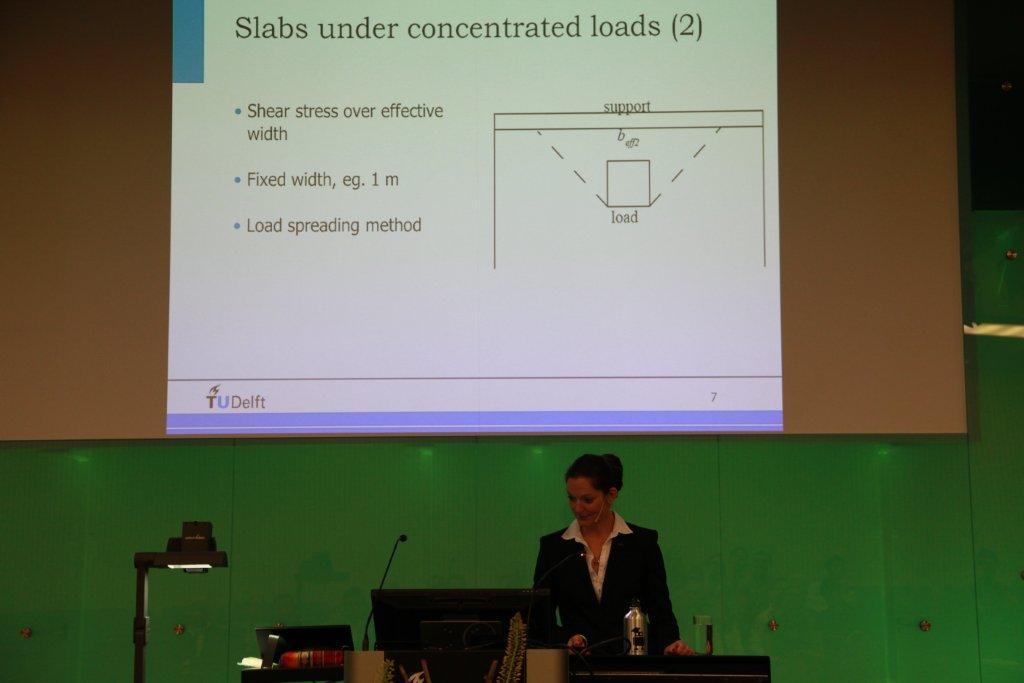
On June 14th , I passed my PhD defense, and I promised to write a blog post replying the question “What was it like to defend?” .
Most of all, it went so quickly. Only during a few moments, I realized of what I was actually doing up there, and the weight of my words – most moments, I simply focused on answering the questions.
I was frankly curious to see what my committee members would ask me.
Immediately after the defense, I received my diploma, which was yet another moment to remember.
It was quite an experience to defend my work in front of my friends and family, and with a committee of knowledgeable people. I started with a 20 minute presentation only for friends and family . Afterwards, the actual defense was 1 hour sharp , and the committee members could ask their questions – members from “far” went first and received most time, and the last was my promotor. In fact, I was half-way through answering my promotor’s first question when the beadle came in to mark the hour.
During the first question I was quite nervous . It was a rather long question, and I did make notes, but I found it difficult to address all the elements that he summed up in his question (and at one point I had difficulty reading what I had scribbled down as one of the points that came up).
But then, after talking through the first 10 minutes, I felt more relaxed , and I realized that I really do know my topic inside out – and that there are elements on which I might have a different opinion than some of my committee members, and that they find that perfectly fine as long as I have a good reason for thinking that way.
During the defense, I spent some time discussing the Modified Bond Model with the first committee member*, who uttered his serious doubts about it, and with the fourth committee member, who mostly wanted me to explain why the results for the slab strips appear to be unsafe – a question that was easily tackled by showing the difference between the pure one-way behavior in the strips as compared to the two-way (or combined one-way and two-way) behavior in the wider specimens that we tested.
The other questions that came up during the defense were about the mechanism of shear transfer, and their relative importance, which I discussed with the second committee member (a more theoretical question), the use of finite element calculations and their practical applications, the difference between plain and ribbed bars (plain bars were used until the mid 1960s, and we also tested slabs reinforced with plain bars to compare to undeformed bars), the proposition about the cracked specimens that turned out to have a surprisingly large residual capacity and the link between the Modified Bond Model and the Hillerborg model.
After the defense itself , the committee left for 15 minutes, and then they came back to give me my diploma, and for the speech of my promotor.
When all was said and done, we had a reception, and in the evening I hosted a dinner in a restaurant in Delft, to celebrate the very end of my PhD studies.
* My defense was public, and you can see the list of committee members in my dissertation, but I can imagine that not everybody likes having their name up on the internet, so I’ve decided to just number my committee members for this post.
Q&A: How to draw crack patterns
Time for a quick Q&A again today! Some time ago,…
PhD Talk for AcademicTransfer: Activism in academia
This post is part of the series PhD Talk for…
PhD Talk for AcademicTransfer: On balancing service with other academic responsibilities
Leave a reply cancel reply.
Your email address will not be published. Required fields are marked *
Save my name, email, and website in this browser for the next time I comment.
- previous post: Writers’ Lab: How to write your Conclusions, Part II: Doctoral Dissertation
- next post: Silver Linings: Conferences, and Flying around the world
- Research and Publications
- Guest Posts
Free Templates for your Research
Sign up here to get access to worksheets for your research that help you have more efficient meetings, reflect on your work, and plan your month. Suitable for anyone from Master’s thesis students to full professors!
Idea changes the world
What happens after you defend your PhD dissertation?
You pass with revisions. Your committee, supervisor, external or all three have revisions for you to incorporate into your thesis. You make the changes, and depending on the severity, either go back to the committee, or usually just get your supervisor to sign off. This is the most common outcome.
Can you call yourself doctor after dissertation defense?
Your advisor, committee, mom and significant other are allowed to call you “Dr.” after the successful conclusion of your dissertation defense. You should not refer to yourself as “Dr.” until the paperwork goes through and the degree is granted.
What Does defending your dissertation mean?
The doctoral final oral examination, or dissertation defense, is the last formal step before the dissertation manuscript is submitted and the doctoral degree awarded. The focus of the final examination is the dissertation and its relationship to the candidate’s field of study.
What is a PhD Defence?
The thesis defence is an oral examination of the student by the student’s PhD Thesis Examining Committee, chaired by an impartial faculty member with ADDs status from outside the candidate’s department. Any member of the university may attend. The Chair is responsible for the proper conduct of the examination.
Are you a doctor after defense?
There isn’t a formal, universally accepted title here. The general standard has been to call them “Doctor” since everything else is in principle a formality. The only other note that I’d make is that it’s not commencement that makes the student in question a doctor, but rather conferral of the degree by the university.
When can you call yourself DR after PhD?
As well as your final dissertation, you will also be assessed through exams and coursework during the course. PhDs and doctorates are either a ‘pass’ or a ‘fail’ and very occasionally a ‘distinction’. But whether you study a PhD or doctorate, you’ll be able to officially call yourself ‘doctor’ if you pass.
How do you prepare for a PhD defense?
How to Prepare for your PhD Defense
- Go to conferences. Presenting your work at academic conferences is a crucial part of your PhD journey.
- Know your committee and their work.
- Revise the crucial papers.
- Prepare for broader questions.
- Know the room and the tools you can use.
- Be your best self.
- Plan your party.
Are you a Dr after a PhD?
But whether you study a PhD or doctorate, you’ll be able to officially call yourself ‘doctor’ if you pass. Doctorates and PhDs are normally the highest qualification you can achieve, so after completing one you’ll normally either become an academic at university doing teaching and research, or move into work.
Is a PhD student a Doctor?
Generally, no. PhD students have not earned the terminal degree yet, so they are not technically suppose to be called Doctor.
Privacy Overview
| Cookie | Duration | Description |
|---|---|---|
| cookielawinfo-checkbox-analytics | 11 months | This cookie is set by GDPR Cookie Consent plugin. The cookie is used to store the user consent for the cookies in the category "Analytics". |
| cookielawinfo-checkbox-functional | 11 months | The cookie is set by GDPR cookie consent to record the user consent for the cookies in the category "Functional". |
| cookielawinfo-checkbox-necessary | 11 months | This cookie is set by GDPR Cookie Consent plugin. The cookies is used to store the user consent for the cookies in the category "Necessary". |
| cookielawinfo-checkbox-others | 11 months | This cookie is set by GDPR Cookie Consent plugin. The cookie is used to store the user consent for the cookies in the category "Other. |
| cookielawinfo-checkbox-performance | 11 months | This cookie is set by GDPR Cookie Consent plugin. The cookie is used to store the user consent for the cookies in the category "Performance". |
| viewed_cookie_policy | 11 months | The cookie is set by the GDPR Cookie Consent plugin and is used to store whether or not user has consented to the use of cookies. It does not store any personal data. |
CONGRATULATIONS TO Rifqi Affan ON HIS SUCCESSFUL PHD DISSERTATION DEFENSE!

“Neural mechanisms of planning”
View all posts
Share Options
- Share to Facebook
- Share to Linkedin
Ph.D. Defense Presentation by Jiechao Gao
Computer Science Department
Event Actions
- Add to iCal
- Add to Google
Towards private and accurate IoT applications
Abstract .
Over the past years, the fast-growing trend of Internet of Things (IoT) is bringing millions of new smart devices and sensors into homes, office buildings and industries. These smart devices and sensors enable smart IoT applications (e.g., energy prediction, activity recognition, etc.) to increase the quality and efficiency of our lives. To achieve promising performance for smart IoT applications, it requires massive data from different users and sensors to guarantee the performance due to machine learning and deep learning purposes. However, the edge devices of IoT applications often collect and store only limited data, which is insufficient for training modern learning models. Collaboratively training sets steps to achieve better application performance among different devices while introducing the concern of data privacy. On the other hand, directly applying privacy-preserving techniques such as differential privacy can dramatically degrade the performance of IoT applications.
In this research, we aim to achieve privacy-first smart IoT applications while ensuring their accurate performance for multi-user and multi-sensor scenarios. First, we propose Personalized Federated Deep Reinforcement Learning~(PFDRL), a system that helps local users achieve private and accurate energy management. PFDRL replaces the central server with a decentralized federated learning (DFL) framework and enables personalized federated reinforcement learning to tackle the standby energy reduction in residential buildings. Next, we propose PFed-LDP, a personalized federated local differential privacy framework for global users. The PFed-LDP design includes a weight-enhanced local differential privacy (LDP) with a dynamic layer-sharing mechanism in the federated learning framework to accomplish privacy-preserving, personalized and communication efficient IoT applications. Finally, we introduce PrivateHub, a system that utilizes contrastive learning with diffusion models for synthetic data generation in multi-sensor scenarios. PrivateHub helps to prevent the private applications' identification from multi-sensor environments while ensuring the accurate performance of the non-private applications.
Committee:
- Yangfeng Ji, Committee Chair (CS/SEAS/UVA)
- Bradford Campbell, Advisor (CS, ECE/SEAS/UVA)
- Lu Feng (CS, SIE/SEAS/UVA)
- Cong Shen (ECE/SEAS/UVA)
- Jorge Ortiz (ECE/School of Eng/Rutgers)
Alumni Spotlight: Recent PhD in Pharmacological Sciences Graduate Huda Barhoosh Showcased “Activity-Based DNA-Encoded Library Screening for Inhibitors of Eukaryotic Translation” Dissertation Defense

“I am very thankful to have had a great graduate school experience that was positive in many aspects,” said Huda Barhoosh, a recent graduate of the UC Irvine School of Pharmacy & Pharmaceutical Sciences’ PhD in Pharmacological Sciences program. “I feel blessed to have a supportive advisor who has helped shape me into a well-rounded scientist. My fellow graduate students have been welcoming and supportive, and I have built lasting friendships.”
A graduate of Qatar University’s BSc in Pharmacy program, Barhoosh chose to pursue her PhD in Pharmacological Sciences at UCI, stating that the program “offered the perfect combination of rigorous research, exceptional faculty, interdisciplinary opportunities, a supportive community, and outstanding resources.”
During her time in the PhD program, Barhoosh served as a student representative for the UCI Diverse Educational Community and Doctoral Experience (DECADE) initiative, which aims to foster inclusivity and guide the success of women and underrepresented minorities who are pursuing graduate degrees. She was on the UCI School of Pharmacy & Pharmaceutical Sciences’ Diversity, Equity, and Inclusion (DEI) committee as well. She also mentored first-year PhD students and was an organizer for the Synthetic and Chemical Biology Club .
Barhoosh completed a 10-week rotation in the Alachkar Lab in her first year at UCI, assisting with research that studied the impact of prenatal stress on mice offspring. Then, she joined the Paegel Lab , contributing to the research team’s studies of miniaturization.
“I worked on developing a miniaturized droplet-based high-throughput screening assay to screen DNA-encoded libraries for inhibitors of eukaryotic translation. A large number of drug targets are currently inaccessible to small-molecule therapeutics due to the nature of the protein target. By inhibiting translation, we can circumvent this and prevent the disease target from being produced in the first place. I’ve designed an assay that can screen small-molecules for translation inhibition and have used it to screen large libraries built in our lab and have discovered novel translation inhibitors,” she shared. “I am fortunate to be part of a research lab that conducts cutting-edge research, which has expanded my skills and knowledge and includes amazing individuals who have enriched my graduate school journey.”
On June 4, Barhoosh presented the culmination of her research at UCI with “Activity-Based DNA-Encoded Library Screening for Inhibitors of Eukaryotic Translation.”
“Small molecule probes exist for only ~2% of human proteins because most lack functional binding pockets or cannot be assayed for high-throughput screening (HTS). Selective translation modulation is a possible mechanism to circumvent canonical druggability constraints and can be evaluated via in vitro transcription translation (IVTT),” she explained in the summary of her dissertation defense. “We developed a plug-and-play IVTT activity assay by fusing a GFP reporter to various target gene sequences and screened these constructs in microfluidic droplets using DNA-encoded libraries (DEL). This work sets the stage for scaling microfluidic IVTT screening to the entirety of the human proteome as a universal biochemical assay, and perhaps more broadly across the tree of life.”
With the completion of her studies, Barhoosh is ready to apply what she has learned to her upcoming professional endeavors.
“The interdisciplinary nature of the PhD in Pharmacological Sciences program has exposed me to a wide range of research areas, broadening my knowledge and perspective. The available resources and facilities have significantly advanced my research,” she said. “I aim to join the pharmaceutical industry and establish my career as a scientist. I hope to use the skills and knowledge that I’ve gained through my training to advance the field of drug discovery.”
Share this post:
- Current Students
Penn State designated as National Center of Academic Excellence in Cyber Defense
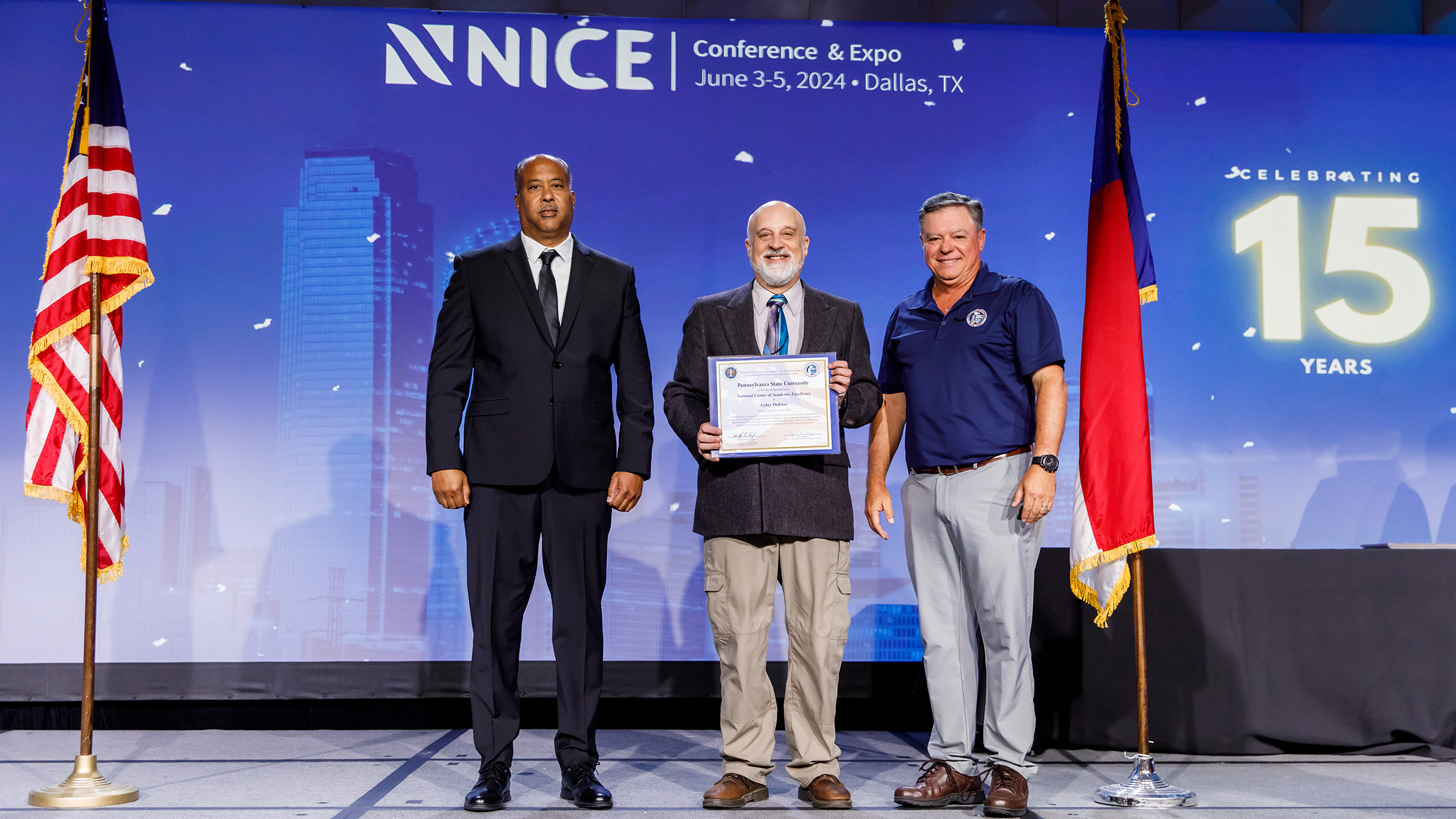
For the third time, Penn State has been designated as a National Center of Academic Excellence in Cyber Defense (CAE-CD). The designated program of study is the security and risk analysis major, information and cybersecurity option, in the College of Information Sciences and Technology (IST).
The designation, which is in place through the 2028 academic year, recognizes Penn State’s ability to bolster the nation’s efforts to address the critical shortage of professionals with cybersecurity skills. Michael Hills, teaching professor and coordinator of the undergraduate security and risk analysis program in the College of IST, accepted the designation at the National Initiative for Cybersecurity Education Conference and Expo . The conference, held June 3–5 in Dallas, brought together community members and thought leaders from education, government, industry, and nonprofits to explore ways of developing a skilled cybersecurity workforce ready to meet the challenges of the future, according to its website.
“Higher education is an important component in defending America’s cyber space,” Hills said. “The U.S. government continues to invest in programs that grow the nation’s cybersecurity workforce as a strategic national security advantage.”
IST’s security and risk analysis program examines how to design systems that are secure, how to measure risk, and how to ensure that proper levels of privacy are maintained for individual technology users, businesses, government agencies, and other organizations. The major is based on an interdisciplinary curriculum that integrates areas of study in information assurance, intelligence analysis, cyber forensics, and law and policy.
The program features an interdisciplinary curriculum that provides a combination of theory, experience with cybersecurity tools, and consideration of law and policy. Students can develop a thorough knowledge of the strategic and tactical levels of intelligence collection, analysis, and decision-making in various security and risk domains. The program also includes a solid research component. Further, the program is available online through Penn State World Campus , making it readily available for active members of the U.S. military.
The certification provides advantages for Penn State students in the security and risk analysis program . Students who complete the required courses that satisfy the designated knowledge units earn a letter of recognition and a certificate of achievement from the National Security Agency and the Department of Homeland Security. This certifies that the student graduated from an institution whose security-related faculty, resources, curricula, and commitment were found to be of high quality.
The CAE-CD is designed to support the development of cybersecurity skills and excellence so that the nation can maintain its competitive edge in cybersecurity, according to the National Security Agency .
“In our next steps, we will review the program of study validations for IST’s undergraduate and graduate programs in cybersecurity analytics and operations,” said Nick Giacobe, associate teaching professor and coordinator of the undergraduate cybersecurity analytics and operations program in the College of IST.
Learn more about the Bachelor of Science in Security Risk and Analysis offered in partnership with the Penn State College of Information Sciences and Technology online through Penn State World Campus.
About the cover photo: Michael Hills, teaching professor in the College of Information Sciences and Technology, holds the certificate showing Penn State's designation as a National Center of Academic Excellence in Cyber Defense at the National Initiative for Cybersecurity Education Conference & Expo. Credit: Florida International University
Military Student Experience Webinar
Blackhawks add experience in all areas to help Bedard, young core
Bertuzzi, Teravanien, Maroon among those signed at forward; Martinez should boost defense

© Jason Mowry and Steve Babineau/NHLI via Getty Images
- Link copied
After the NHL Draft, free agency and other offseason moves, NHL.com is examining where each team stands in preparation for the 2024-25 regular season, which starts Oct. 4. Today, the Chicago Blackhawks:
2023-24 season: 23-53-6, eighth in Central Division
Key arrivals
Tyler Bertuzzi , F: The 29-year-old signed a four-year contract and is expected to play in the top six, perhaps even being a linemate of center Connor Bedard . He had 43 points (21 goals, 22 assists) in 80 games with the Toronto Maple Leafs last season. … Teuvo Teravainen , F: It’s a reunion for the 29-year-old, who played for the Blackhawks from 2013-16 and won the Stanley Cup with them in 2015. Teravainen, who signed a three-year deal, is also expected to be among Chicago’s top six forwards and a potential Bedard linemate. Teravainen had 53 points (25 goals, 28 assists) in 76 games with the Carolina Hurricanes last season. … Laurent Brossoit , G: The 31-year-old, who signed a two-year contract, bolsters a goaltending tandem that also includes Petr Mrazek . Broissoit was 15-5-2 with a 2.00 goals-against average, .927 save percentage and three shutouts in 23 games (22 starts) with the Winnipeg Jets last season. … Ilya Mikheyev , F: The 29-year-old, acquired from the Vancouver Canucks, had 31 points (11 goals, 20 assists) in 78 regular-season games. … Alec Martinez , D: A three-time Stanley Cup winner with the Los Angeles Kings (2012, 2014) and the Vegas Golden Knights (2023), Martinez had 17 points (four goals, 13 assists) in 55 games with Vegas last season. He signed a one-year contract and turns 37 on July 26. … Pat Maroon , F: The 36-year-old, who signed a one-year contract, had 16 points (four goals, 12 assists) in 49 games with the Minnesota Wild and no points in two games with the Boston Bruins last season. He had two assists in 13 Stanley Cup Playoff games for Boston. … Craig Smith , F: The 34-year-old, who signed a one-year deal, had 20 points (11 goals, nine assists) in 75 regular-season games and two assists in 14 playoff games with the Dallas Stars last season. … TJ Brodie , D: The 34-year-old, who signed a two-year contract, had 26 points (one goal, 25 assists) in 78 regular-season games for the Maple Leafs last season.
NHL Tonight on Teravainen returning to the Blackhawks
Key departures
Tyler Johnson , F: Johnson, who will turn 34 on July 29, had 31 points (17 goals, 14 assists) in 67 games last season and is an unrestricted free agent. He won the Stanley Cup with the Tampa Bay Lightning in 2020 and 2021. … Taylor Raddysh , F: The 26-year-old scored a career-high 20 goals in 2022-23 but finished with 14 points (five goals, nine assists) in 73 games last season. He signed a one-year contract with the Washington Capitals on July 1. … Jarred Tinordi , D: The 32-year-old had nine assists in 52 games last season. He is an unrestricted free agent.
On the cusp
Artyom Levshunov, D: The No. 2 pick by the Blackhawks in the 2024 NHL Draft, Levshunov signed a three-year, entry-level contract Saturday. The 18-year-old had 35 points (nine goals, 26 assists) in 38 games last season with Michigan State and was named Big Ten Defensive Player of the Year and Freshman of the Year. He’s likely to start the season with Rockford, the Blackhawks’ American Hockey League affiliate. … Frank Nazar , F: The 20-year-old made his NHL debut with the Blackhawks last season, when he had one goal in three games. He had 41 points (17 goals, 24 assists) in 41 games with the University of Michigan. With so many veterans added, it may be tougher for Nazar to make the main roster immediately, but he could arrive later in the season. Landon Slaggert , F: The 22-year-old had four points (one goal, three assists) in 16 games with the Blackhawks last season. He’s in the same boat as Nazar and will have a lot of veteran competition to make the main roster.
The Chicago Blackhawks select Artyom Levshunov with the second overall pick
What they still need
The Blackhawks had a very busy July 1, but getting another right-handed defenseman may not be a bad idea. On its current roster, Chicago has four left-handed defensemen and two right-handed. Of its prospects who saw time in the NHL last season, Louis Crevier, who played 24 games with the Blackhawks, is the only one who’s right-handed.
They said it
“We want to be better. We want to be able to go into games and impose ourselves on a game more than we have in the past, rather than trying to stem the tide or having teams take it to us. We want to be able to play with the puck more and control the game a little more and obviously get more wins as a result. I believe it’s our ability to impose ourselves on the game more than we have certainly the last two years.” -- general manager Kyle Davidson
Fantasy focus
The Blackhawks added two wings with key fantasy value to their offense this season by signing Bertuzzi and Teravainen. Bertuzzi was just short of being a point-per-game player with the Detroit Red Wings in 2021-22 when he had 62 points (30 goals, 32 assists) in 68 games. He has high individual fantasy upside this season if he gets exposure to Bedard on Chicago’s top line. Teravainen hit the 50-point mark in two of his past three seasons with Carolina; he has a solid production ceiling, reaching a career-best 76 points (21 goals, 55 assists) in 82 games with the Hurricanes in 2018-19. Shifting from a deep Carolina offense to Chicago’s may lower his individual fantasy value, but Teravainen is still worth a flier in deeper leagues. -- Anna Dua
Projected lineup
Tyler Bertuzzi -- Connor Bedard -- Philipp Kurashev
Taylor Hall -- Jason Dickinson -- Teuvo Teravainen
Nick Foligno -- Andreas Athanasiou -- Ilya Mikheyev
Pat Maroon -- Ryan Donato -- Craig Smith
Alex Vlasic -- Seth Jones
Kevin Korchinski -- Connor Murphy
Alec Martinez -- TJ Brodie
Petr Mrazek
Laurent Broissoit
Latest News

Yakemchuk 'has great deal of potential' to stand out for Senators

Ritchie ready to take next step toward spot on Avalanche roster
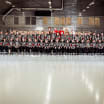
NHL brings officiating lessons abroad at 2024 European Summer Exposure Combine

Pavelski near top of American Century Championship leaderboard

NHL Free Agent Tracker

O'Reilly's intangibles sold Oilers on trading up to select forward in 1st round

Hurricanes reunite with Gostisbehere, sign Walker, lose Pesce, Skjei

Letourneau's future with Bruins looking up, thanks to 6-foot-7 frame

2024 NHL Draft 1st-round pick signings tracker
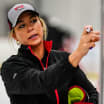
LaCombe hoping to use work at Hurricanes development camp to broaden coaching career

Best food dishes eaten out of Stanley Cup
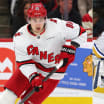
Necas, Luukkonen among 14 players to file for NHL salary arbitration

Moser signs 2-year, $6.75 million contract with Lightning, avoids hearing

Johnson 'open for any role' after re-signing with Flyers

Beliveau placed loyalty to Canadiens ahead of WHA offer

Iginla signs entry-level contract, 1st draft pick in Utah history

Schmidt 'chasing a ring' by signing with Panthers, reuniting with Maurice

Sabres impressed by Helenius' competitive nature
Cookie Acknowledgement
This website uses cookies to collect information to improve your browsing experience. Please review our Privacy Statement for more information.

Aerospace Engineering student earns Department of Defense fellowship
Published: Jul 11, 2024 12:00 PM
By Dustin Duncan
Matthew Hooks, a master's student in the Department of Aerospace Engineering , was recently awarded a National Defense Science and Engineering Graduate (NDSEG) Fellowship sponsored by the Department of Defense (DOD).
Hooks earned his bachelor's degree in engineering physics from Murray State University. His proposal, which landed him the NDSEG fellowship, investigates how birds use surface textures on their feathers — such as converging-diverging riblets — to improve aerodynamic performance during flapping flight.
"Birds use their wings to make mid-flight adjustments effortlessly," he said. "However, we're trying to understand if the surface texture on the wings improves aerodynamic performance."
Hooks' academic mentor, Vrishank Raghav , associate professor in aerospace engineering, handpicked the NDSEG scholar after learning of his academic aspirations in a personal statement to Auburn. Hooks said he was interested in investigating birds' flight patterns and developing software solutions for physical problems.
"Matthew has demonstrated that he is passionate about Bird flight and has previously conducted research in physics," Raghav said. "As such, we explored avenues for him to get involved with fluid physics and aerodynamics of bird flight by using resources available at Auburn University. The NDSEG fellowship is a testament to his perseverance and hard work. I look forward to working with him on this exciting project."
Raghav also has an interest in birds' flight patterns . He partnered with the Auburn University Raptor Center , a division of the College of Veterinary Medicine, to learn how birds can quickly adapt to adverse aerodynamic environments due to changing weather conditions — where traditional aircraft and unmanned aerial vehicles seem to struggle.
The Raptor Center is a rehabilitation and education facility providing critical education and conservation efforts for raptors.
Hooks also volunteers at the Raptor Center, which is a big reason why he's staying at Auburn to pursue his doctoral degree after finishing his master's degree.
"I am consciously choosing to stay because of the Raptor Center and Dr. Raghav's research interests," Hooks said. "Auburn is giving me the graduate experience I imagined during my undergraduate education."
"When I first started at Auburn, fluid physics was foreign to me, but the aerospace engineering department has helped ramp up my understanding of physics in the context of bird flight. I wouldn't have been able to write the narrative and make sense of my proposed research without the help of Dr. Raghav, multiple faculty members at Auburn and my fellow lab members in the Applied Fluids Research Group ."
In an effort to increase the number of U.S. citizens and nationals trained in science and engineering disciplines of military importance, the DOD offers these fellowships to individuals who have demonstrated the ability and special aptitude for advanced training in science and engineering.
The NSDEG's three-year fellowship allows all recipients to attend whichever U.S. institution they choose, paying for full tuition and all mandatory fees. Hooks was the only awardee from Auburn this year. Out of 3,392 applicants, 162 awards were handed out this year, placing the acceptance rate at less than 5%. Since the program's inception in 1989, more than 4,400 fellowships have been awarded.
Matthew Hooks, a master's student in the Department of Aerospace Engineering poses for a photo outside of Shelby Hall on Auburn's campus.
Featured Faculty
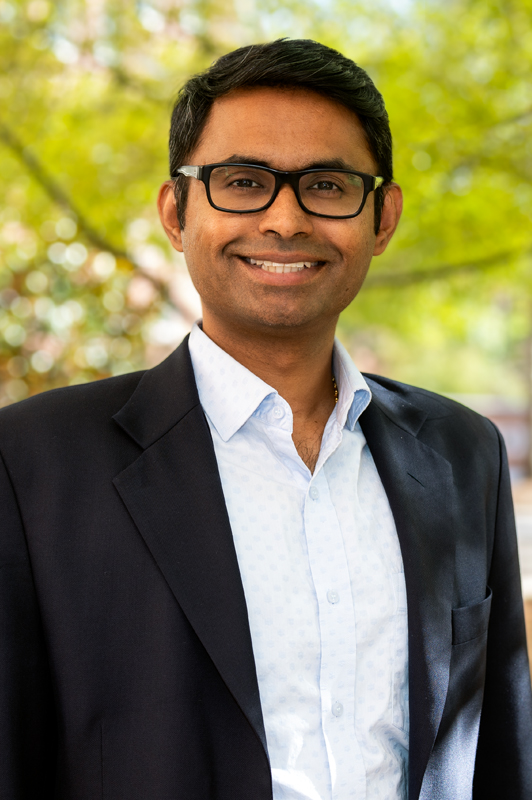
Aerospace Engineering
Recent Headlines
- RTÉ Archives
- RTÉ Brainstorm
- RTÉ Learn
- RTÉ Radio 1
- RTÉ lyric fm
- RTÉ Raidió na Gaeltachta
- RTÉ Weather
- Century Ireland
- Policies and Reports
- Terms & Conditions
- Individual Rights Guide
- Privacy Policy
- Cookie Policy
- Freedom of Information
- Latest Annual Report
- Advertise with RTÉ
- Newsletters
- RTÉ Supporting the Arts
Rory McIlroy's Scottish Open defence begins with a round of 65

Rory McIlroy bounced back from his US Open heartbreak to make a strong start to the defence of his title at the lucrative Genesis Scottish Open.
Competing for the first time since agonisingly missing out on a fifth major title at Pinehurst, McIlroy carded a five-under-par 65 at the Renaissance Club to lie a shot off the clubhouse lead shared by Max Kieffer and Li Haotong.
The world number two chipped in for an eagle on the third hole, his 12th of the day, and also recorded five birdies, but missed good chances on three of his last five holes.
"I hit a couple of shots over the first few holes that I haven't seen in practice over the last 10 days so it was a bit of a reminder that golf isn’t as easy as sometimes I think it is," McIlroy said with a smile.
"But then I really started to feel good. Especially on the front nine, our back nine, I started to hit some good drives, some good iron shots.
"I gave myself plenty of chances on that back nine and actually felt like I left a couple out there as well. Overall a good start, especially after the scrappy start over the first six or seven holes."
McIlroy briefly held a two-shot lead with five holes to play in the US Open but bogeyed three of the last four, missing from two feet and six inches on the 16th and three feet and nine inches on the last to finish a shot behind Bryson DeChambeau.
"I’m not going to let three or four holes cloud my judgement in terms of how good I’m playing," the 35-year-old added.
"It wasn’t just the US Open. I played well at the Canadian Open and at Memorial and the US PGA and Quail Hollow. My game has been in good shape and it was in good shape coming in here.
"It’s just a matter of going out there and focusing on the task at hand and not letting your mind wander too much. I felt like I did a good job of that today."
McIlroy was joined on five under par by Ryder Cup team-mate Tommy Fleetwood, who was delighted to have long-term caddie Ian Finnis back on the bag after undergoing open-heart surgery earlier this year.
"It feels great," Fleetwood said after a round containing five birdies and no bogeys.
"It feels nice to have had a really good round in his first week, for him more than anything. We did a great job. Everything sort of flowed, really, today. He made a couple of great decisions, so it’s like he’s not been away."
Seamus Power sits on one under after a round of 69, with the Waterford man bouncing back from a bogey on the ninth to register consecutive birdies on 10 and 11.
Padraig Harrington is one shot further back after recording three birdies and the same number of bogeys.
More stories on
- DP World Tour
- Genesis Scottish Open
Get the Reddit app
This subreddit is for discussing academic life, and for asking questions directed towards people involved in academia, (both science and humanities).
PhD defense in a few hours
Just getting this off my chest. I'll defend in a few hours and genuinely think there is a big probability that I will fail. My thesis is an embarrassment to myself, my PI, and the field. Data is limited, analysis is very simple, conclusions are unclear. I could train a master student and the whole data collection could be completed in 2 months. The analysis approach is like the ones done in the 70s or 80s, product of a bygone era. I don't belong on the modern, cutting edge area of science.
I have made peace (slightly) that it's ok if I fail. I will go back to my home country this weekend (will be expensive but I don't care anymore), leave science forever (imagine wanting to understand the brain lol, what a nerd), and start my life anew. I just don't want my family and closest friends see me differently if I fail.
Former Sen. Jim Inhofe, defense hawk who called human-caused climate change a ‘hoax,’ dies at 89
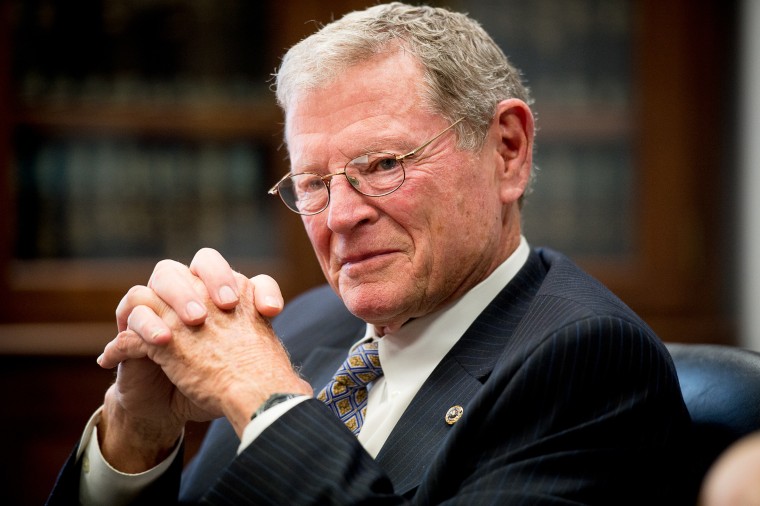
OKLAHOMA CITY — Former Sen. Jim Inhofe, a conservative firebrand known for his strong support of defense spending and his denial that human activity is responsible for the bulk of climate change, has died. He was 89.
Inhofe, a powerful fixture in Oklahoma politics for over six decades, died Tuesday morning after he had a stroke over the July Fourth holiday, his family said in a statement.
Inhofe, who was elected to a fifth Senate term in 2020, stepped down in early 2023 .
Inhofe frequently criticized the mainstream science that human activity contributed to changes in the Earth’s climate, once calling it “the greatest hoax ever perpetrated on the American people.”
In February 2015, with temperatures in the nation’s capital below freezing, Inhofe brought a snowball on to the Senate floor. He tossed it before claiming that environmentalists focus attention on global warming as it kept getting cold. “It’s very, very cold out. Very unseasonable,” Inhofe said.
As Oklahoma’s senior U.S. senator, Inhofe was a staunch supporter of the state’s five military installations and a vocal fan of congressional earmarks. The Army veteran and licensed pilot, who would fly himself to and from Washington, secured the federal money to fund local road and bridge projects, and criticized House Republicans who wanted a one-year moratorium on such pet projects in 2010.
“Defeating an earmark doesn’t save a nickel,” Inhofe told the Oklahoma City Chamber of Commerce that August. “It merely means that within the budget process, it goes right back to the bureaucracy.”
He was a strong backer of President Donald Trump, who praised him for his “incredible support of our #MAGA agenda” while endorsing the senator’s 2020 reelection bid. During the Trump administration, Inhofe served as chair of the Senate Armed Services Committee following the death of Republican Sen. John McCain of Arizona.
Inhofe caught national attention in March 2009 by introducing legislation that would have prevented detainees from the U.S. military prison in Guantanamo Bay from being relocated “anywhere on American soil.”
Closer to home, Inhofe helped secure millions of dollars to clean up a former mining hub in northeast Oklahoma that spent decades on the Environmental Protection Agency’s Superfund list. In a massive buyout program, the federal government purchased homes and businesses within the 40-square-mile (104-square-kilometer) region of Tar Creek, where children consistently tested for dangerous levels of lead in their blood.
“This is an example of a government program created for a specific purpose and then dissolves after the job is completed. This is how government should work,” Inhofe said in December 2010, when the project was nearly complete.
In 2021, Inhofe defied some in his party by voting to certify Democrat Joe Biden’s victory in the presidential election, saying that to do otherwise would be a violation of his oath of office to support and defend the Constitution. He voted against convicting Trump at both of his impeachment trials.
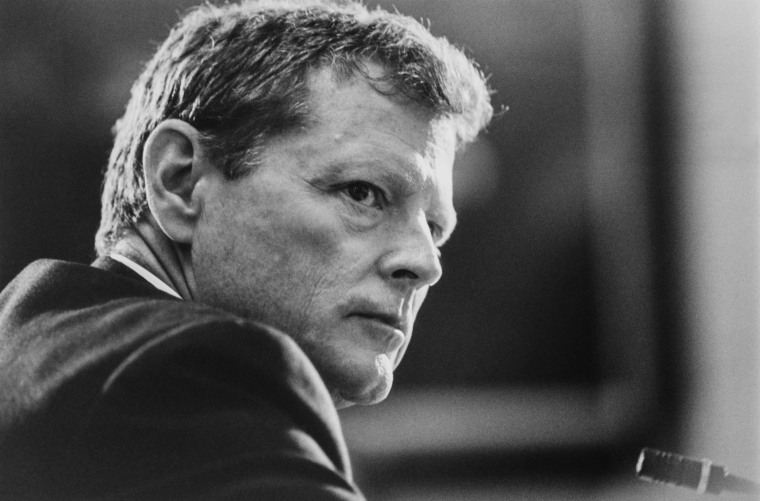
Born James Mountain Inhofe on Nov. 17, 1934, in Des Moines, Iowa, Inhofe grew up in Tulsa, Oklahoma, and received a bachelor’s degree in economics from the University of Tulsa in 1959. He served in the Army between 1956 and 1958, and was a businessman for three decades, serving as president of Quaker Life Insurance Co.
His political career began in 1966, when he was elected to the state House. Two years later he won an Oklahoma Senate seat that he held during unsuccessful runs for governor in 1974 and for the U.S. House in 1976. He then won three terms at Tulsa mayor starting in 1978.
Inhofe went on to win two terms in the U.S. House in the 1980s, before throwing his hat into a bitter U.S. Senate race when longtime Sen. David Boren resigned in 1994 to become president of the University of Oklahoma. Inhofe beat then-U.S. Rep. Dave McCurdy in a special election that year to serve the final two years of Boren’s term and was reelected five times.
Inhofe lived up to his reputation as a tough campaigner in his 2008 reelection bid against Democrat Andrew Rice, a 35-year-old state senator and former missionary. Inhofe claimed Rice was “too liberal” for Oklahoma and ran television ads that critics said contained anti-gay overtones, including one that showed a wedding cake topped by two plastic grooms and a photo of Rice as a young man wearing a leather jacket.
Rice, who has two children with his wife and earned his master’s degree from Harvard University Divinity School, accused Inhofe of distorting his record and attacking his character.
Inhofe’s bullish personality also was apparent outside politics. He was a commercial-rated pilot and flight instructor with more than 50 years of flying experience.
He made an emergency landing in Claremore in 1999, after his plane lost a propeller, an incident later blamed on an installation error. In 2006, his plane spun out of control upon landing in Tulsa; he and an aide escaped injury, though the plane was severely damaged.
In 2010, Inhofe landed his small plane on a closed runway at a rural South Texas airport while flying himself and others to a home he owned in South Padre Island. Runway workers scrambled, and Inhofe agreed to complete a remedial training program rather than face possible legal action.
“I’m 75 years old, but I still fly airplanes upside down,” Inhofe said in August 2010. “I don’t know why it is, but I don’t hurt anywhere, and I don’t feel any differently than I felt five years ago.”
Inhofe is survived by his wife, Kay, three children and several grandchildren. A son, Dr. Perry Dyson Inhofe II, died in November 2013, at the age of 51, when the twin-engine aircraft he was flying crashed a few miles north of Tulsa International Airport.
About Stanford GSB
- The Leadership
- Dean’s Updates
- School News & History
- Commencement
- Business, Government & Society
- Centers & Institutes
- Center for Entrepreneurial Studies
- Center for Social Innovation
- Stanford Seed
About the Experience
- Learning at Stanford GSB
- Experiential Learning
- Guest Speakers
- Entrepreneurship
- Social Innovation
- Communication
- Life at Stanford GSB
- Collaborative Environment
- Activities & Organizations
- Student Services
- Housing Options
- International Students
Full-Time Degree Programs
- Why Stanford MBA
- Academic Experience
- Financial Aid
- Why Stanford MSx
- Research Fellows Program
- See All Programs
Non-Degree & Certificate Programs
- Executive Education
- Stanford Executive Program
- Programs for Organizations
- The Difference
- Online Programs
- Stanford LEAD
- Seed Transformation Program
- Aspire Program
- Seed Spark Program
- Faculty Profiles
- Academic Areas
- Awards & Honors
- Conferences
Faculty Research
- Publications
- Working Papers
- Case Studies
Research Hub
- Research Labs & Initiatives
- Business Library
- Data, Analytics & Research Computing
- Behavioral Lab
Research Labs
- Cities, Housing & Society Lab
- Golub Capital Social Impact Lab
Research Initiatives
- Corporate Governance Research Initiative
- Corporations and Society Initiative
- Policy and Innovation Initiative
- Rapid Decarbonization Initiative
- Stanford Latino Entrepreneurship Initiative
- Value Chain Innovation Initiative
- Venture Capital Initiative
- Career & Success
- Climate & Sustainability
- Corporate Governance
- Culture & Society
- Finance & Investing
- Government & Politics
- Leadership & Management
- Markets and Trade
- Operations & Logistics
- Opportunity & Access
- Technology & AI
- Opinion & Analysis
- Email Newsletter
Welcome, Alumni
- Communities
- Digital Communities & Tools
- Regional Chapters
- Women’s Programs
- Identity Chapters
- Find Your Reunion
- Career Resources
- Job Search Resources
- Career & Life Transitions
- Programs & Webinars
- Career Video Library
- Alumni Education
- Research Resources
- Volunteering
- Alumni News
- Class Notes
- Alumni Voices
- Contact Alumni Relations
- Upcoming Events
Admission Events & Information Sessions
- MBA Program
- MSx Program
- PhD Program
- Alumni Events
- All Other Events
- Operations, Information & Technology
- Organizational Behavior
- Political Economy
- Classical Liberalism
- The Eddie Lunch
- Accounting Summer Camp
- Videos, Code & Data
- California Econometrics Conference
- California Quantitative Marketing PhD Conference
- California School Conference
- China India Insights Conference
- Homo economicus, Evolving
- Political Economics (2023–24)
- Scaling Geologic Storage of CO2 (2023–24)
- A Resilient Pacific: Building Connections, Envisioning Solutions
- Adaptation and Innovation
- Changing Climate
- Civil Society
- Climate Impact Summit
- Climate Science
- Corporate Carbon Disclosures
- Earth’s Seafloor
- Environmental Justice
- Operations and Information Technology
- Organizations
- Sustainability Reporting and Control
- Taking the Pulse of the Planet
- Urban Infrastructure
- Watershed Restoration
- Junior Faculty Workshop on Financial Regulation and Banking
- Ken Singleton Celebration
- Marketing Camp
- Quantitative Marketing PhD Alumni Conference
- Presentations
- Theory and Inference in Accounting Research
- Stanford Closer Look Series
- Quick Guides
- Core Concepts
- Journal Articles
- Glossary of Terms
- Faculty & Staff
- Researchers & Students
- Research Approach
- Charitable Giving
- Financial Health
- Government Services
- Workers & Careers
- Short Course
- Adaptive & Iterative Experimentation
- Incentive Design
- Social Sciences & Behavioral Nudges
- Bandit Experiment Application
- Conferences & Events
- Get Involved
- Reading Materials
- Teaching & Curriculum
- Energy Entrepreneurship
- Faculty & Affiliates
- SOLE Report
- Responsible Supply Chains
- Current Study Usage
- Pre-Registration Information
- Participate in a Study
Using and Interpreting Fixed Effects Models
Fixed effects (FE) have emerged as a ubiquitous and powerful tool for eliminating unwanted variation in observational accounting studies. Unwanted variation is plentiful in accounting research because we often use rich data to test precise hypotheses derived from abstract theories. By eliminating unwanted variation, FE reduce concerns that omitted variables bias our estimates or weaken test power. FE are not costless, though, so their use should be carefully justified by theoretical and institutional considerations. FE also transform samples and variables in ways that are not immediately apparent, and in doing so affect how we should interpret regression results. This primer explains the mechanics of FE and provides practical guidance for the informed use, transparent reporting, and careful interpretation of FE models.
- Priorities for the GSB's Future
- See the Current DEI Report
- Supporting Data
- Research & Insights
- Share Your Thoughts
- Search Fund Primer
- Affiliated Faculty
- Faculty Advisors
- Louis W. Foster Resource Center
- Defining Social Innovation
- Impact Compass
- Global Health Innovation Insights
- Faculty Affiliates
- Student Awards & Certificates
- Changemakers
- Dean Jonathan Levin
- Dean Garth Saloner
- Dean Robert Joss
- Dean Michael Spence
- Dean Robert Jaedicke
- Dean Rene McPherson
- Dean Arjay Miller
- Dean Ernest Arbuckle
- Dean Jacob Hugh Jackson
- Dean Willard Hotchkiss
- Faculty in Memoriam
- Stanford GSB Firsts
- Class of 2024 Candidates
- Certificate & Award Recipients
- Dean’s Remarks
- Keynote Address
- Teaching Approach
- Analysis and Measurement of Impact
- The Corporate Entrepreneur: Startup in a Grown-Up Enterprise
- Data-Driven Impact
- Designing Experiments for Impact
- Digital Marketing
- The Founder’s Right Hand
- Marketing for Measurable Change
- Product Management
- Public Policy Lab: Financial Challenges Facing US Cities
- Public Policy Lab: Homelessness in California
- Lab Features
- Curricular Integration
- View From The Top
- Formation of New Ventures
- Managing Growing Enterprises
- Startup Garage
- Explore Beyond the Classroom
- Stanford Venture Studio
- Summer Program
- Workshops & Events
- The Five Lenses of Entrepreneurship
- Leadership Labs
- Executive Challenge
- Arbuckle Leadership Fellows Program
- Selection Process
- Training Schedule
- Time Commitment
- Learning Expectations
- Post-Training Opportunities
- Who Should Apply
- Introductory T-Groups
- Leadership for Society Program
- Certificate
- 2024 Awardees
- 2023 Awardees
- 2022 Awardees
- 2021 Awardees
- 2020 Awardees
- 2019 Awardees
- 2018 Awardees
- Social Management Immersion Fund
- Stanford Impact Founder Fellowships
- Stanford Impact Leader Prizes
- Social Entrepreneurship
- Stanford GSB Impact Fund
- Economic Development
- Energy & Environment
- Stanford GSB Residences
- Environmental Leadership
- Stanford GSB Artwork
- A Closer Look
- California & the Bay Area
- Voices of Stanford GSB
- Business & Beneficial Technology
- Business & Sustainability
- Business & Free Markets
- Business, Government, and Society Forum
- Second Year
- Global Experiences
- JD/MBA Joint Degree
- MA Education/MBA Joint Degree
- MD/MBA Dual Degree
- MPP/MBA Joint Degree
- MS Computer Science/MBA Joint Degree
- MS Electrical Engineering/MBA Joint Degree
- MS Environment and Resources (E-IPER)/MBA Joint Degree
- Academic Calendar
- Clubs & Activities
- LGBTQ+ Students
- Military Veterans
- Minorities & People of Color
- Partners & Families
- Students with Disabilities
- Student Support
- Residential Life
- Student Voices
- MBA Alumni Voices
- A Week in the Life
- Career Support
- Employment Outcomes
- Cost of Attendance
- Knight-Hennessy Scholars Program
- Yellow Ribbon Program
- BOLD Fellows Fund
- Application Process
- Loan Forgiveness
- Contact the Financial Aid Office
- Evaluation Criteria
- GMAT & GRE
- English Language Proficiency
- Personal Information, Activities & Awards
- Professional Experience
- Letters of Recommendation
- Optional Short Answer Questions
- Application Fee
- Reapplication
- Deferred Enrollment
- Joint & Dual Degrees
- Entering Class Profile
- Event Schedule
- Ambassadors
- New & Noteworthy
- Ask a Question
- See Why Stanford MSx
- Is MSx Right for You?
- MSx Stories
- Leadership Development
- How You Will Learn
- Admission Events
- Personal Information
- GMAT, GRE & EA
- English Proficiency Tests
- Career Change
- Career Advancement
- Daycare, Schools & Camps
- U.S. Citizens and Permanent Residents
- Requirements
- Requirements: Behavioral
- Requirements: Quantitative
- Requirements: Macro
- Requirements: Micro
- Annual Evaluations
- Field Examination
- Research Activities
- Research Papers
- Dissertation
- Oral Examination
- Current Students
- Education & CV
- International Applicants
- Statement of Purpose
- Reapplicants
- Application Fee Waiver
- Deadline & Decisions
- Job Market Candidates
- Academic Placements
- Stay in Touch
- Faculty Mentors
- Current Fellows
- Standard Track
- Fellowship & Benefits
- Group Enrollment
- Program Formats
- Developing a Program
- Diversity & Inclusion
- Strategic Transformation
- Program Experience
- Contact Client Services
- Campus Experience
- Live Online Experience
- Silicon Valley & Bay Area
- Digital Credentials
- Faculty Spotlights
- Participant Spotlights
- Eligibility
- International Participants
- Stanford Ignite
- Frequently Asked Questions
- Founding Donors
- Location Information
- Participant Profile
- Network Membership
- Program Impact
- Collaborators
- Entrepreneur Profiles
- Company Spotlights
- Seed Transformation Network
- Responsibilities
- Current Coaches
- How to Apply
- Meet the Consultants
- Meet the Interns
- Intern Profiles
- Collaborate
- Research Library
- News & Insights
- Program Contacts
- Databases & Datasets
- Research Guides
- Consultations
- Research Workshops
- Career Research
- Research Data Services
- Course Reserves
- Course Research Guides
- Material Loan Periods
- Fines & Other Charges
- Document Delivery
- Interlibrary Loan
- Equipment Checkout
- Print & Scan
- MBA & MSx Students
- PhD Students
- Other Stanford Students
- Faculty Assistants
- Research Assistants
- Stanford GSB Alumni
- Telling Our Story
- Staff Directory
- Site Registration
- Alumni Directory
- Alumni Email
- Privacy Settings & My Profile
- Success Stories
- The Story of Circles
- Support Women’s Circles
- Stanford Women on Boards Initiative
- Alumnae Spotlights
- Insights & Research
- Industry & Professional
- Entrepreneurial Commitment Group
- Recent Alumni
- Half-Century Club
- Fall Reunions
- Spring Reunions
- MBA 25th Reunion
- Half-Century Club Reunion
- Faculty Lectures
- Ernest C. Arbuckle Award
- Alison Elliott Exceptional Achievement Award
- ENCORE Award
- Excellence in Leadership Award
- John W. Gardner Volunteer Leadership Award
- Robert K. Jaedicke Faculty Award
- Jack McDonald Military Service Appreciation Award
- Jerry I. Porras Latino Leadership Award
- Tapestry Award
- Student & Alumni Events
- Executive Recruiters
- Interviewing
- Land the Perfect Job with LinkedIn
- Negotiating
- Elevator Pitch
- Email Best Practices
- Resumes & Cover Letters
- Self-Assessment
- Whitney Birdwell Ball
- Margaret Brooks
- Bryn Panee Burkhart
- Margaret Chan
- Ricki Frankel
- Peter Gandolfo
- Cindy W. Greig
- Natalie Guillen
- Carly Janson
- Sloan Klein
- Sherri Appel Lassila
- Stuart Meyer
- Tanisha Parrish
- Virginia Roberson
- Philippe Taieb
- Michael Takagawa
- Terra Winston
- Johanna Wise
- Debbie Wolter
- Rebecca Zucker
- Complimentary Coaching
- Changing Careers
- Work-Life Integration
- Career Breaks
- Flexible Work
- Encore Careers
- Join a Board
- D&B Hoovers
- Data Axle (ReferenceUSA)
- EBSCO Business Source
- Global Newsstream
- Market Share Reporter
- ProQuest One Business
- Student Clubs
- Entrepreneurial Students
- Stanford GSB Trust
- Alumni Community
- How to Volunteer
- Springboard Sessions
- Consulting Projects
- 2020 – 2029
- 2010 – 2019
- 2000 – 2009
- 1990 – 1999
- 1980 – 1989
- 1970 – 1979
- 1960 – 1969
- 1950 – 1959
- 1940 – 1949
- Service Areas
- ACT History
- ACT Awards Celebration
- ACT Governance Structure
- Building Leadership for ACT
- Individual Leadership Positions
- Leadership Role Overview
- Purpose of the ACT Management Board
- Contact ACT
- Business & Nonprofit Communities
- Reunion Volunteers
- Ways to Give
- Fiscal Year Report
- Business School Fund Leadership Council
- Planned Giving Options
- Planned Giving Benefits
- Planned Gifts and Reunions
- Legacy Partners
- Giving News & Stories
- Giving Deadlines
- Development Staff
- Submit Class Notes
- Class Secretaries
- Board of Directors
- Health Care
- Sustainability
- Class Takeaways
- All Else Equal: Making Better Decisions
- If/Then: Business, Leadership, Society
- Grit & Growth
- Think Fast, Talk Smart
- Spring 2022
- Spring 2021
- Autumn 2020
- Summer 2020
- Winter 2020
- In the Media
- For Journalists
- DCI Fellows
- Other Auditors
- Academic Calendar & Deadlines
- Course Materials
- Entrepreneurial Resources
- Campus Drive Grove
- Campus Drive Lawn
- CEMEX Auditorium
- King Community Court
- Seawell Family Boardroom
- Stanford GSB Bowl
- Stanford Investors Common
- Town Square
- Vidalakis Courtyard
- Vidalakis Dining Hall
- Catering Services
- Policies & Guidelines
- Reservations
- Contact Faculty Recruiting
- Lecturer Positions
- Postdoctoral Positions
- Accommodations
- CMC-Managed Interviews
- Recruiter-Managed Interviews
- Virtual Interviews
- Campus & Virtual
- Search for Candidates
- Think Globally
- Recruiting Calendar
- Recruiting Policies
- Full-Time Employment
- Summer Employment
- Entrepreneurial Summer Program
- Global Management Immersion Experience
- Social-Purpose Summer Internships
- Process Overview
- Project Types
- Client Eligibility Criteria
- Client Screening
- ACT Leadership
- Social Innovation & Nonprofit Management Resources
- Develop Your Organization’s Talent
- Centers & Initiatives
- Student Fellowships

IMAGES
VIDEO
COMMENTS
The PhD defence, also known as the viva voce or oral examination, is a pivotal moment in the life of a doctoral candidate. PhD defence is not merely a ritualistic ceremony; rather, it serves as a platform for scholars to present, defend, and elucidate the findings and implications of their research. The defence is the crucible where ideas are ...
The defense is usually more of a celebratory milestone of all your hard work, rather than a difficult obstacle to get through. If your PI is confident in you, then you have nothing to worry about. You'll do great. This, no PI would put you in front for a defense if they do not trust you know what you are talking about.
A subreddit dedicated to PhDs. I just attended my first defense, and I'm confused, to say the least. I'm a first year PhD student, and I attended my first defense today. It's fair to say I went into it with some preconceived notions, but it was nothing like I was expecting. I suppose reading this subreddit and talking to people I know who have ...
Note: The questions were compiled with a Finnish PhD defense in mind. In Finland, the defense is at the very end of the research process, and no changes to the PhD will be made after the event. The defense is also a public event. The list was last edited: November 3rd, 2022 Title and cover. Why did you choose this title?
It is a big milestone and a very important day for a researcher. Yet, due to the COVID-19 pandemic, many final year PhD and masters students have been unable to experience a traditional dissertation defense. The pandemic has disrupted almost all aspects of academic life, including how the dissertation defense is carried out.
Where I did my PhD it was even further to the side you describe. Before the defense one gets an email with a formal letter attached stating that the thesis has been approved (i.e. stating that the work is worthy of a PhD). Essentially the only way to fail at the defense is if it turns out you did not do the work yourself. -
In the weeks following my PhD defense and graduation, I wrote about how I prepared for my PhD defense and about my experience during the defense itself.Long before my own defense, I had already written a post about the process and schedule of a PhD defense at TU Delft (and in the rest of the Netherlands).. These previous posts were mostly written from my point of view, and tied very closely to ...
Summary. A PhD viva involves defending your thesis in an oral examination with at least two examiners.; The aim of a PhD viva is to confirm that the work is your own, that you have a deep understanding of your project and, overall, that you are a competent researcher.; There are no standard durations, but they usually range from one to three hours, with most lasting approximately two hours.
The basic idea (1) A thesis is a hypothesis or conjecture. A PhD dissertation is a lengthy, formal document that argues in defense of a particular thesis. (The term "thesis" is often used to refer to the document, so dictionaries now includes it as one meaning of "thesis.") Two important adjectives used to describe a dissertation are ...
I just passed my PhD defence (after 5 years) and do not have friends to share this with, I feel nothing so any "congratulations" would help :) PhD Wins ... thanks a lot! the saying is incredibly cool and I feel the PhD can be an both an intimate and shared experience, it becomes embedded into your life and identity but the struggles are ...
Crafting a thesis is significant, but defending it often feels like the ultimate test. While nerve-wracking, proper preparation can make it manageable. Prepare for your thesis defense with insights on the top questions you can expect, including strategies for answering convincingly. Contents Mastering the thesis defense: cultivate a success mindsetQuestion 1: Why did you choose
also should experience it," or because \This is what we've always done," or because \This is what [name a program] does." On the other hand, this continuing (defense) discussion can be an ideal time to exchange interesting ideas in-spired by the candidate's work, as alluded to in my tweet above. Indeed, fresh PhD work repre-
Here are a few important things to know about the defense in the Netherlands: 1. You defend your thesis and propositions. Not many countries require that the PhD defense includes the defense of propositions. Propositions are statements from your research, your field, and society in general which you should be able to argue in favor of during ...
PhD defence of J. Seifert (Faculty of Science / Nanophotonics) PhD defence: Navigating the neuronal maze. Monday 8 July 2024 from 14:15 to 15:15. PhD defence of D. Jurriens (Faculty of Science / Cell Biology) PhD defence: Carbon nanofiber growth from methane decomposition over Ni-based catalysts: a balancing act.
My role as the opponent was to give the thesis, and the candidate's knowledge, a good airing out; but I did so to help the examining committee judge the defence, not to judge it myself. After perhaps 5 minutes, the examining committee emerged to announce the candidate's success. That was the defence, but it wasn't the end of the day.
It was quite an experience to defend my work in front of my friends and family, and with a committee of knowledgeable people. I started with a 20 minute presentation only for friends and family. Afterwards, the actual defense was 1 hour sharp, and the committee members could ask their questions - members from "far" went first and received ...
What is a PhD Defence? The thesis defence is an oral examination of the student by the student's PhD Thesis Examining Committee, chaired by an impartial faculty member with ADDs status from outside the candidate's department. Any member of the university may attend. The Chair is responsible for the proper conduct of the examination.
CONGRATULATIONS TO Rifqi Affan ON HIS SUCCESSFUL PHD DISSERTATION DEFENSE! Posted 1 day ago on Wednesday, July 10th, 2024 in Graduate Program News, Graduate Program News. View all posts. Calendar. 11 Jul Quarrel, artwork by Matt Murphy; 11 Jul A Summer Place, an exhibition by Breehan James and Nancy Wissemann-Widrig;
Towards private and accurate IoT applications Abstract Over the past years, the fast-growing trend of Internet of Things (IoT) is bringing millions of new smart devices and sensors into homes, office buildings and industries. These smart devices and sensors enable smart IoT applications (e.g., energy prediction, activity recognition, etc.) to increase the quality and efficiency of our lives.
Passed my defense yesterday but feeling downtrodden. Health & Work/Life Balance. After 5 years and 8 months I finally defended my neuroscience dissertation this past Thursday. The presentation and questioning from faculty members not on my committee and other graduate students went SO smoothly and I recieved a ton of praise, but as soon as I ...
Alumni Spotlight: Recent PhD in Pharmacological Sciences Graduate Huda Barhoosh Showcased "Activity-Based DNA-Encoded Library Screening for Inhibitors of Eukaryotic Translation" Dissertation Defense "I am very thankful to have had a great graduate school experience that was positive in many aspects," said Huda Barhoosh, a recent graduate of the UC Irvine School of Pharmacy & ...
For the third time, Penn State has been designated as a National Center of Academic Excellence in Cyber Defense (CAE-CD). The designated program of study is the security and risk analysis major, information and cybersecurity option, in the College of Information Sciences and Technology (IST).. The designation, which is in place through the 2028 academic year, recognizes Penn State's ability ...
Graduate defenses. Ph.D. Dissertation Defense: Jared Soundy Thursday, July 11, 2024 ... Ph.D. dissertation defense tomorrow; Subscribe. Receive future newsletters from Bits & Bytes. Visit this link to subscribe to the email list. Announce. 1400 R Street Lincoln, NE 68588 402-472-7211.
Key departures. Tyler Johnson, F: Johnson, who will turn 34 on July 29, had 31 points (17 goals, 14 assists) in 67 games last season and is an unrestricted free agent.He won the Stanley Cup with ...
Matthew Hooks, a master's student in the Department of Aerospace Engineering, was recently awarded a National Defense Science and Engineering Graduate (NDSEG) Fellowship sponsored by the Department of Defense (DOD). Hooks earned his bachelor's degree in engineering physics from Murray State University. His proposal, which landed him the NDSEG fellowship, investigates how birds use surface ...
Rory McIlroy's Scottish Open defence begins with a round of 65 Updated / Thursday, 11 Jul 2024 15:26. Rory McIlroy plays his second shot on the 13th hole at the Renaissance Club.
PhD defense in a few hours. Just getting this off my chest. I'll defend in a few hours and genuinely think there is a big probability that I will fail. My thesis is an embarrassment to myself, my PI, and the field. Data is limited, analysis is very simple, conclusions are unclear. I could train a master student and the whole data collection ...
With Brooks, Sapp, Lynch, Barber and Simeon Rice leading the way, the 2002 Bucs defense became the first unit since the 1985 Super Bowl-winning Chicago Bears to lead the league in fewest points ...
Former Sen. Jim Inhofe, a conservative firebrand known for his strong support of defense spending and his denial that human activity is responsible for the bulk of climate change, has died. He was 89.
Fixed effects (FE) have emerged as a ubiquitous and powerful tool for eliminating unwanted variation in observational accounting studies. Unwanted variation is plentiful in accounting research because we often use rich data to test precise hypotheses derived from abstract theories.